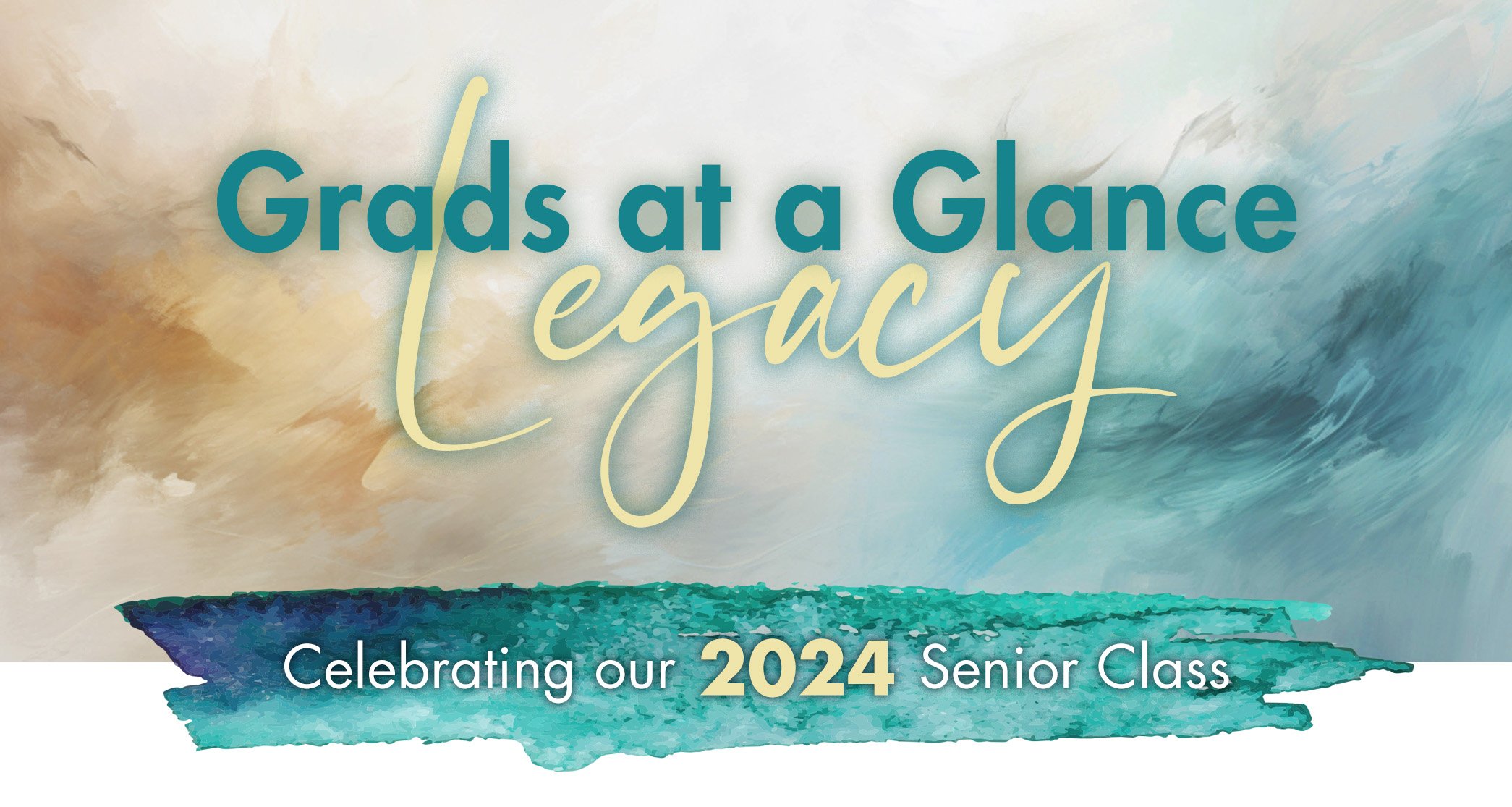
In our schools, legacies are born.
“Students leaving their mark, brushstroke by brushstroke."
And as they step into the world, it's the school's legacy that guides them forward. A legacy isn't just about what we leave behind, but how it shapes those who come after us.
Centennial High School: Akaysha Cox | Mikey Hatch
Poudre Community Academy: Joslyn Schaeffer | Armando Granados-Porter
Fossil Ridge High School: Tyson Danford | Melissa Wong
Rocky Mountain High School: Sophie Bruno | Kyrstin Askew
Poudre High School: Estephany Hernandez Vega | Rubi Gallegos-Valdez
Polaris Expeditionary Learning School: Soup Cloud | Aria Weiner
Poudre Global Academy: Val Miller | Nevaeh Greene
Fort Collins High School: Erin Dangerfield | Gretchen Coon
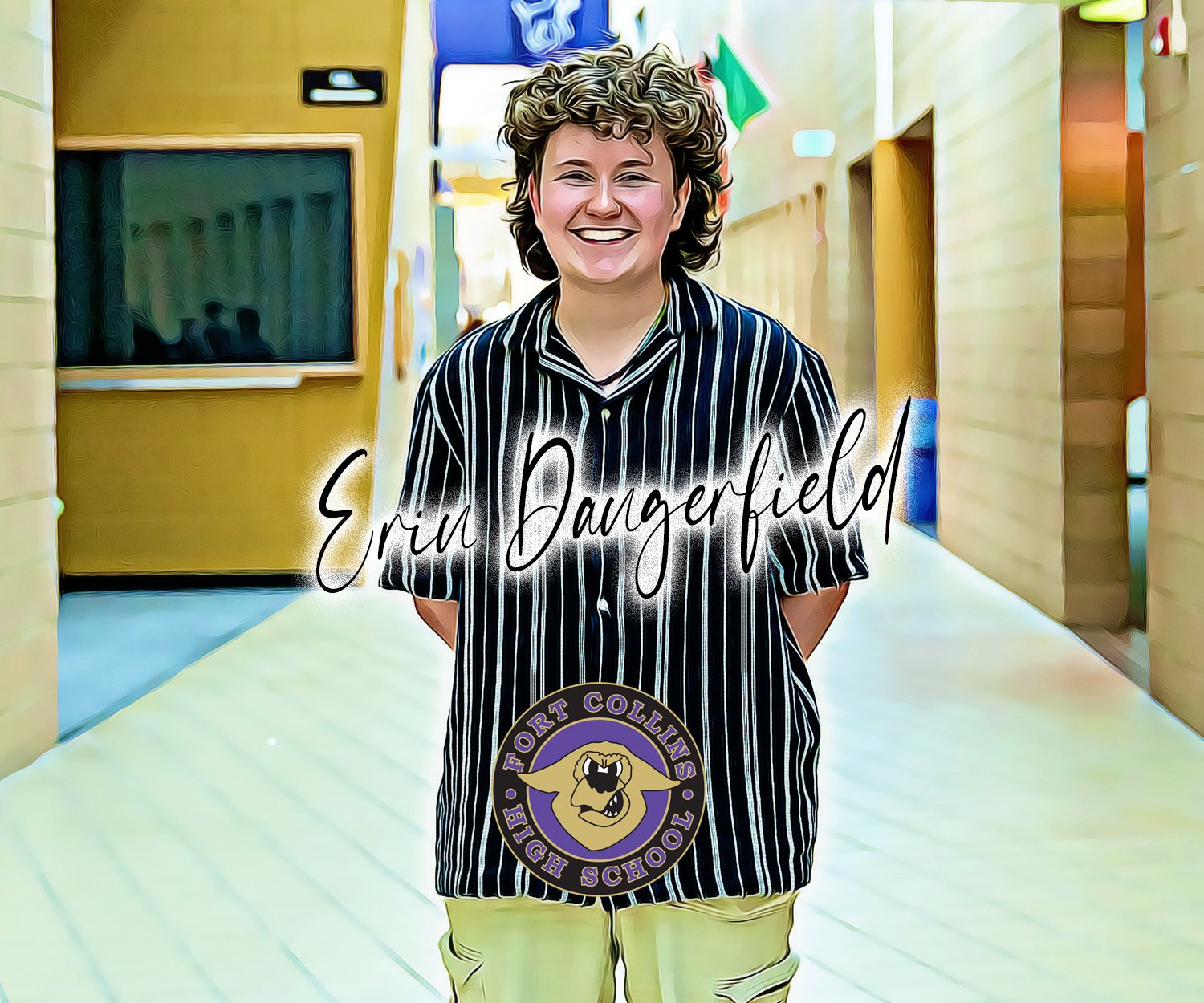
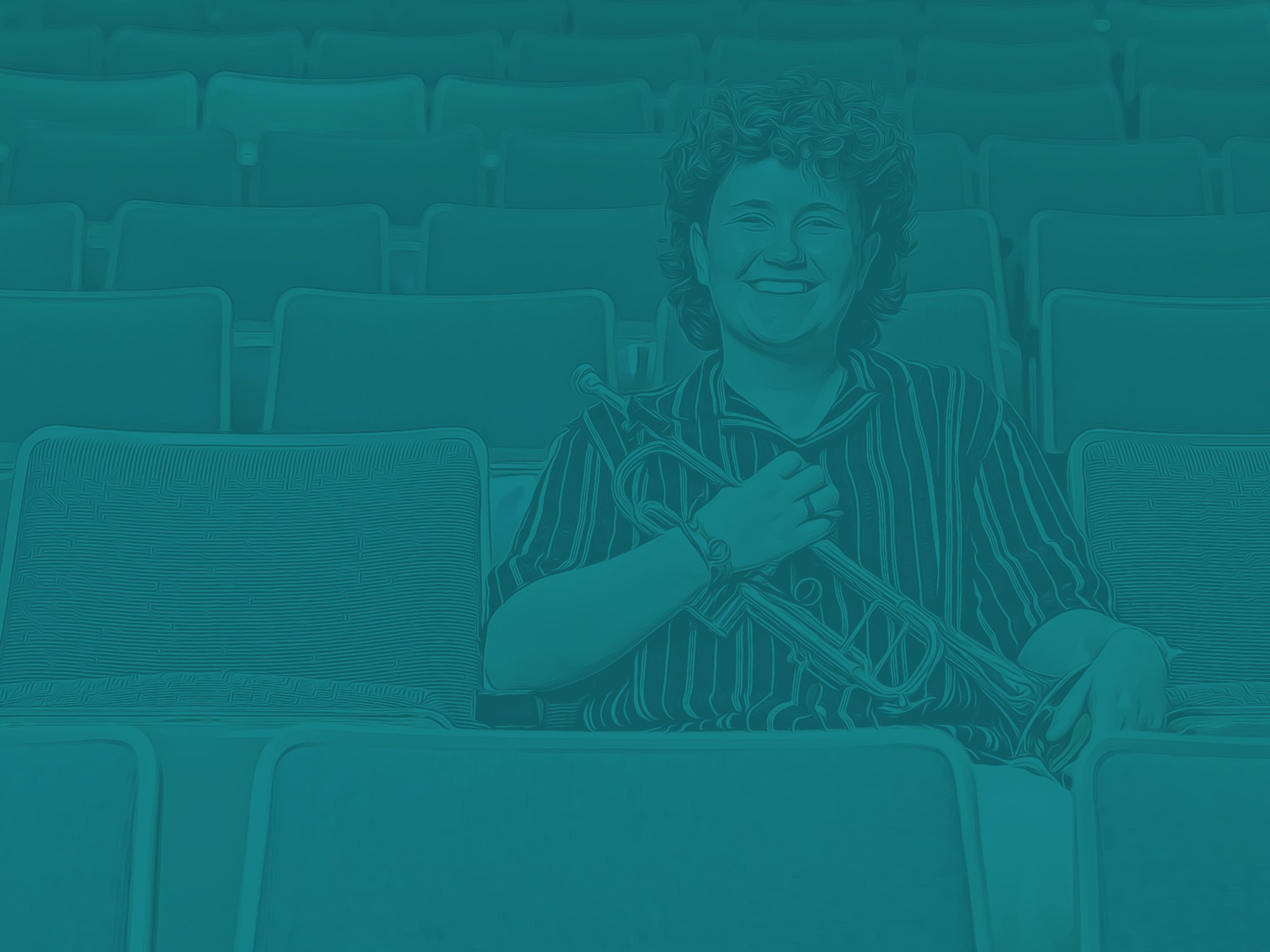
Erin Dangerfield
Join us in celebrating the incredible journey of Erin, a passionate high school student whose dedication to music has left an incredible mark on Fort Collins High School and its vibrant performing arts community. From their early days in the pit orchestra to leading numerous musical groups across the school, Erin's tireless commitment has inspired countless students and enriched Fort Collins High School.
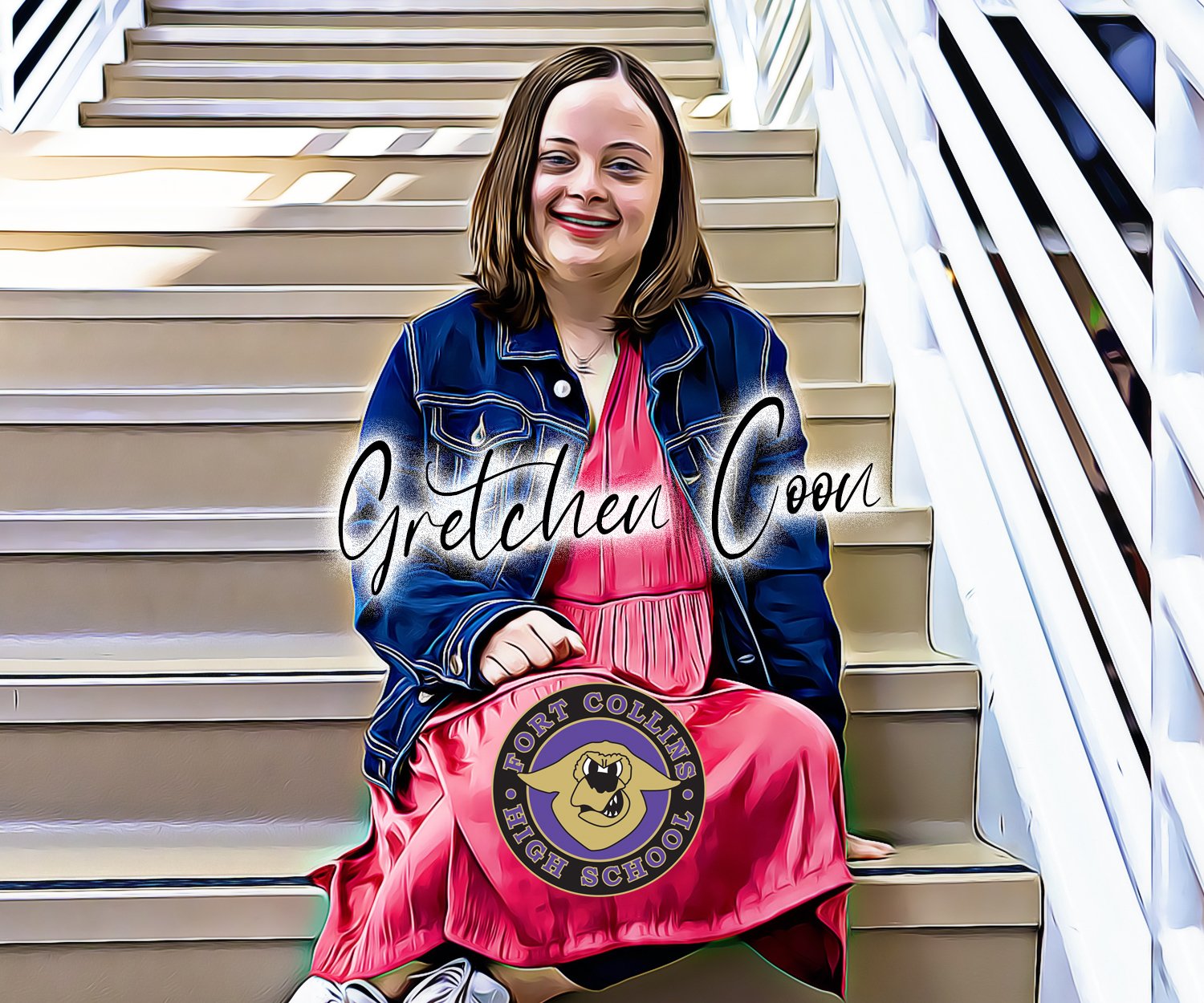
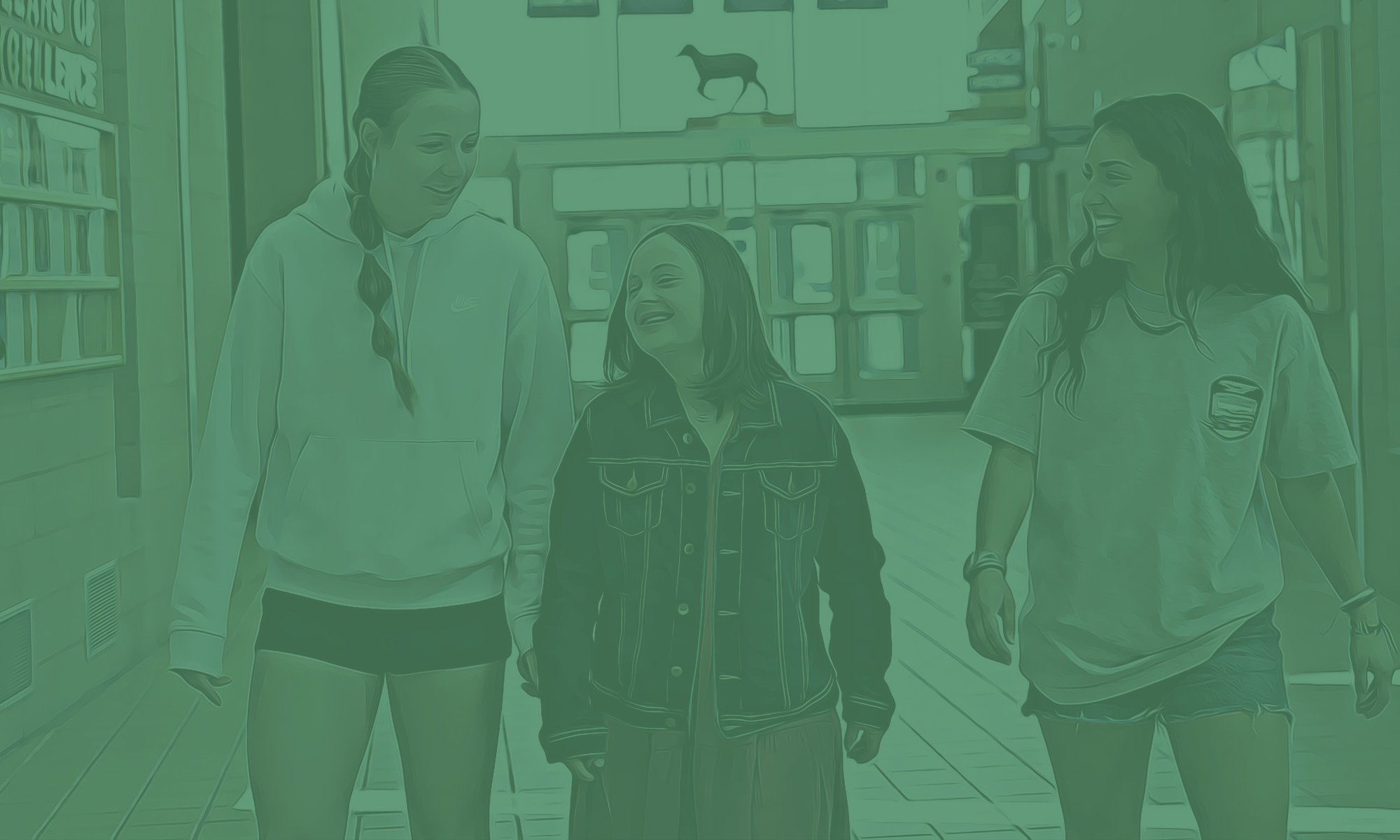
Fort Collins High School senior Gretchen Coon radiates joy and inspires others
Each day at Fort Collins High School, the smile and positive attitude of senior Gretchen Coon brightens the hallways and classrooms.
Gretchen works hard as a student and wants to do everything and anything to be involved with Fort Collins High School. From swimming, Unified cheerleading, being a LINK Leader, and more, Gretchen is not interested in limitations set for her and wants to overcome peoples’ views on what she should be capable of based on her having Down syndrome.
She carries out everything she sets her mind to and is leaving behind a legacy of joy, kindness, and positivity.
Do you have a favorite memory at Fort Collins High School?
Seeing my friends every single day is a good memory to me.
I just like being a Lambkin. I knew that since my sister went here.
I also went to Linton Elementary School and then Boltz Middle School.
What activities have you taken part in throughout high school?
I’ve done swimming for Collins’ team and for the Special Olympics, soccer, track, and Unified cheerleading, swim club, and a musical – “Annie.” I’ve done a lot.
What was the unique opportunity you had in your junior year?
I was overseas for six months. My dad was a teacher, so I was in Ireland for a semester on a study abroad program. I got to take classes like hiking and a creative writing class with the college students.
What are you going to miss the most at Fort Collins High School?
Teachers and friends. I liked my classes, especially Film Studies, Consumer Concepts, Earth Systems Science, Pottery, and Drama.
What is next for you after graduation?
I’m attending the PSD C.A.M.P.U.S. Transition Pathway at Colorado State University. I’m excited about that. My goal is to go to Regis University after.
What kind of job do you want in the future?
Acting. I want to be a director.
What is your connection to Gretchen, and how would you say she is leaving a legacy at Fort Collins High School?
Paige Fry: Our siblings are in the same year, so I’ve known Gretchen since kindergarten or a little bit before. Gretchen and I have been through it all.
(Her legacy) has to be kindness and positivity. She radiates so much joy and so much love for everyone around her. Walking into the halls, you can just tell that she's happy to be here and wants to get to know everybody. It's just so fun being around someone so loving.
Rachel McAuliffe: I'm one of Gretchen's teachers. I had her in my first year of teaching Earth Systems Science.
You would know when Gretchen wasn’t there because the class was missing a lot of brightness and joy. Gretchen is inspiring to me. She sets no limits for herself, and I think a lot of people could learn from her. She just comes along and reminds you that life is too short to worry about the big things. It’s all about the little things, like finding joy in movies, snacks of the day, and connecting with those around you.
Amy McLean: I have also had the opportunity to have Gretchen in two classes. She was in my writing class and the Earth Systems Science class that McAuliffe and I co-taught.
Gretchen shows up every day ready to do everything and anything expected of her and more. I’ve never heard a single negative word out of her mouth. She is just pure value added to anywhere she is whether it’s in the pool, with her friends, or in the classroom. Gretchen brings everything she has and sets an example for everyone to follow in terms of the respect she gives to every peer and teacher.
Emma Soto: Gretchen and I got close through swim. We did swim together all three years. Gretchen is a huge part of our swim community. I was captain this year, and I was lucky to room with her for our travel meet. We went to middle school together, so I’ve known Gretchen for seven years, and now we’re getting to graduate together.
I would say Gretchen’s impact is huge. I feel like everyone knows her. She always has a smile on her face. She’s always saying hi to everybody. I would say her legacy is just how friendly, outgoing, and nice she is.
Anything else you would like to add about Gretchen?
Emma Soto: I’m just so glad that I’ve been able to know Gretchen for so long and that we had so much fun at swim this year. I’m sad it’s over, but I can’t wait to see all the awesome things (she will) do next year.
Paige Fry: We love Gretchen at Collins. She has such a big heart and is just so easy to love and fun to get to know.
Rachel McAuliffe: I can’t wait to see the impact she’s going to continue to have after high school, and I hope to keep in touch. I think she’s definitely changed my world, and I want to continue to have that light in my life because of Gretchen.
Amy McLean: I can’t wait for her to expand that positivity into the world and share it with other people outside these walls.
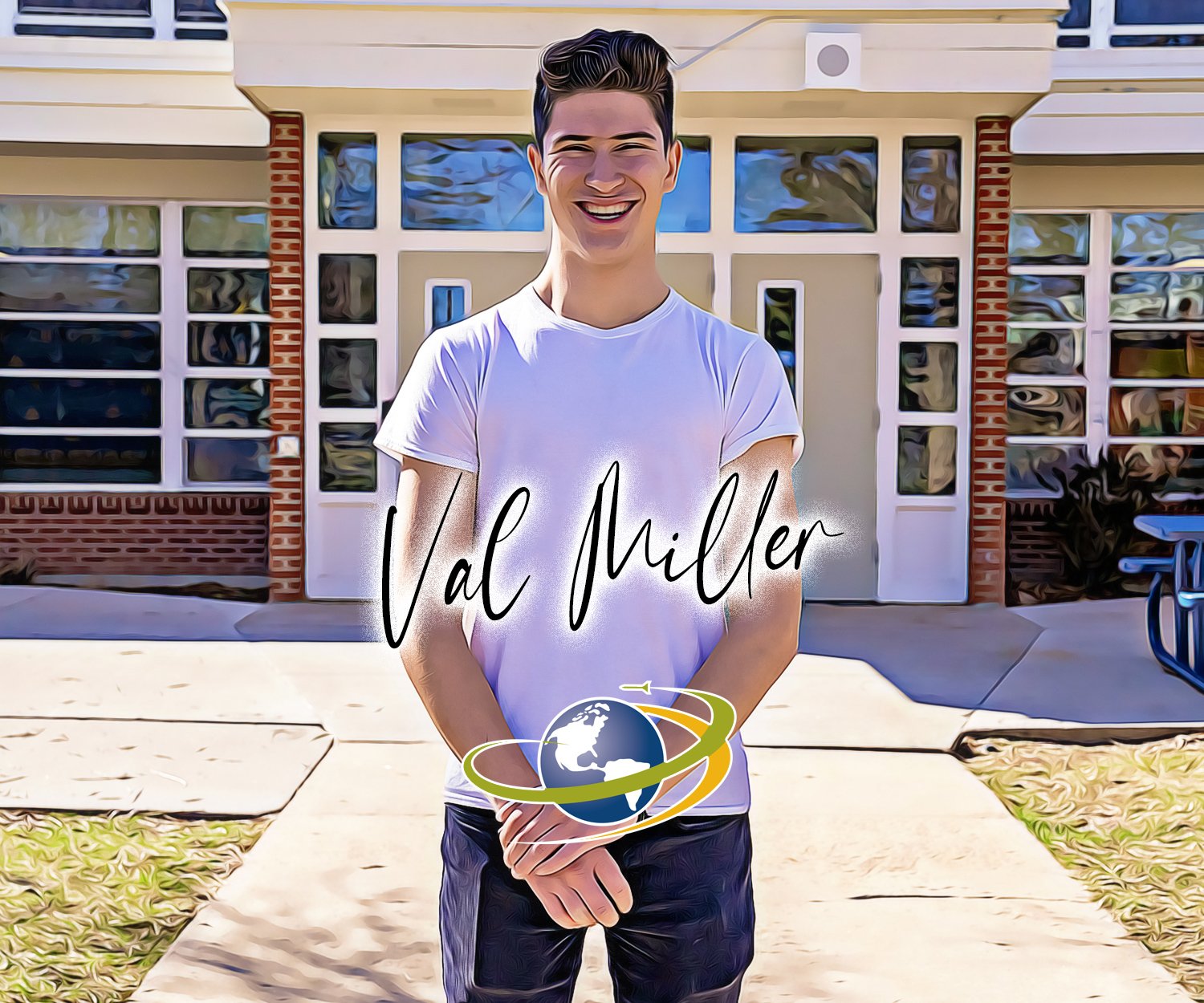

Val Miller
Val Miller, a graduating senior at Poudre Global Academy has left a deep legacy on PGA through relationships. His ability to form meaningful connections with both peers and teachers is truly remarkable. He has been a positive influence on the students and impacted PGA’s campus.
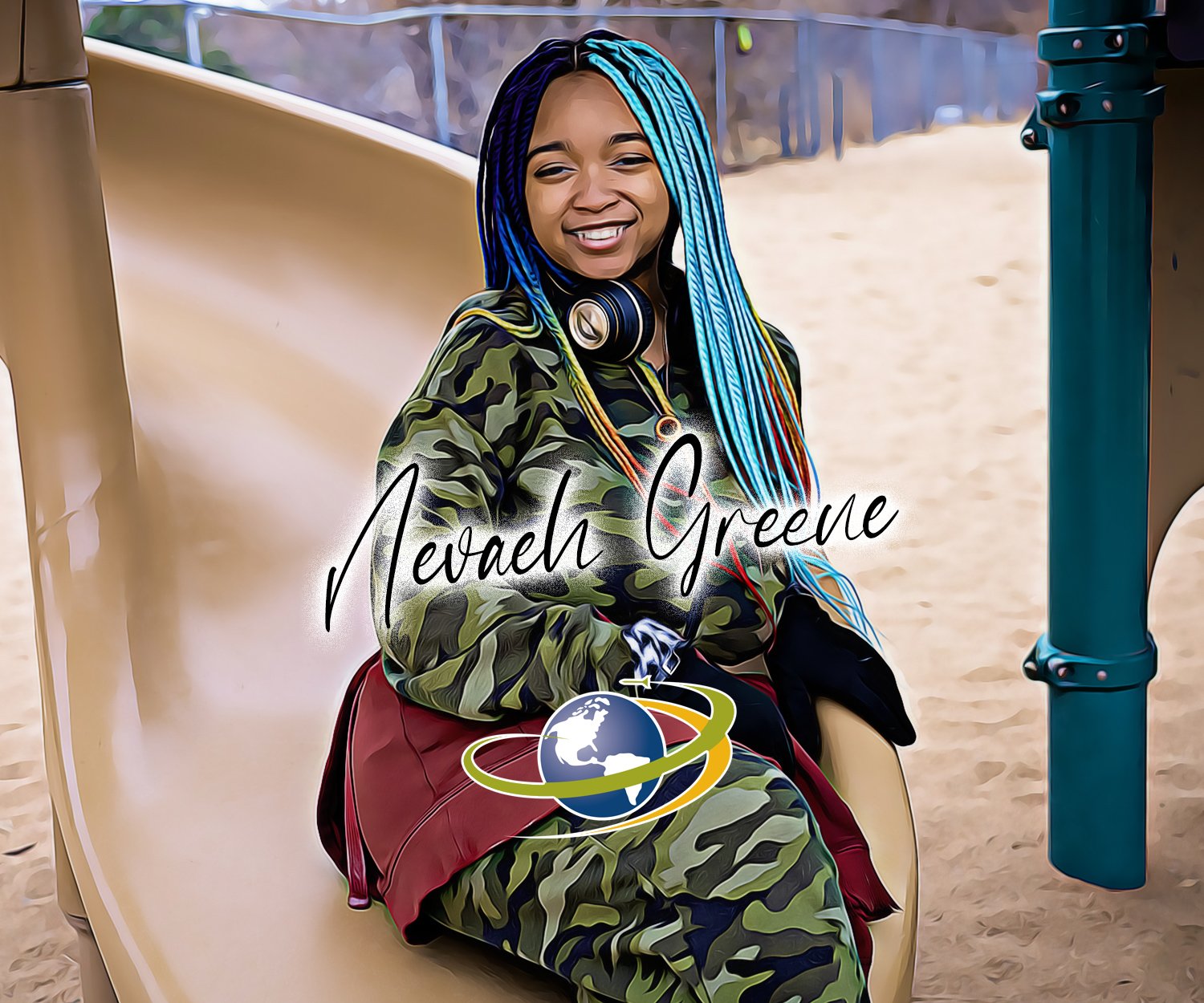
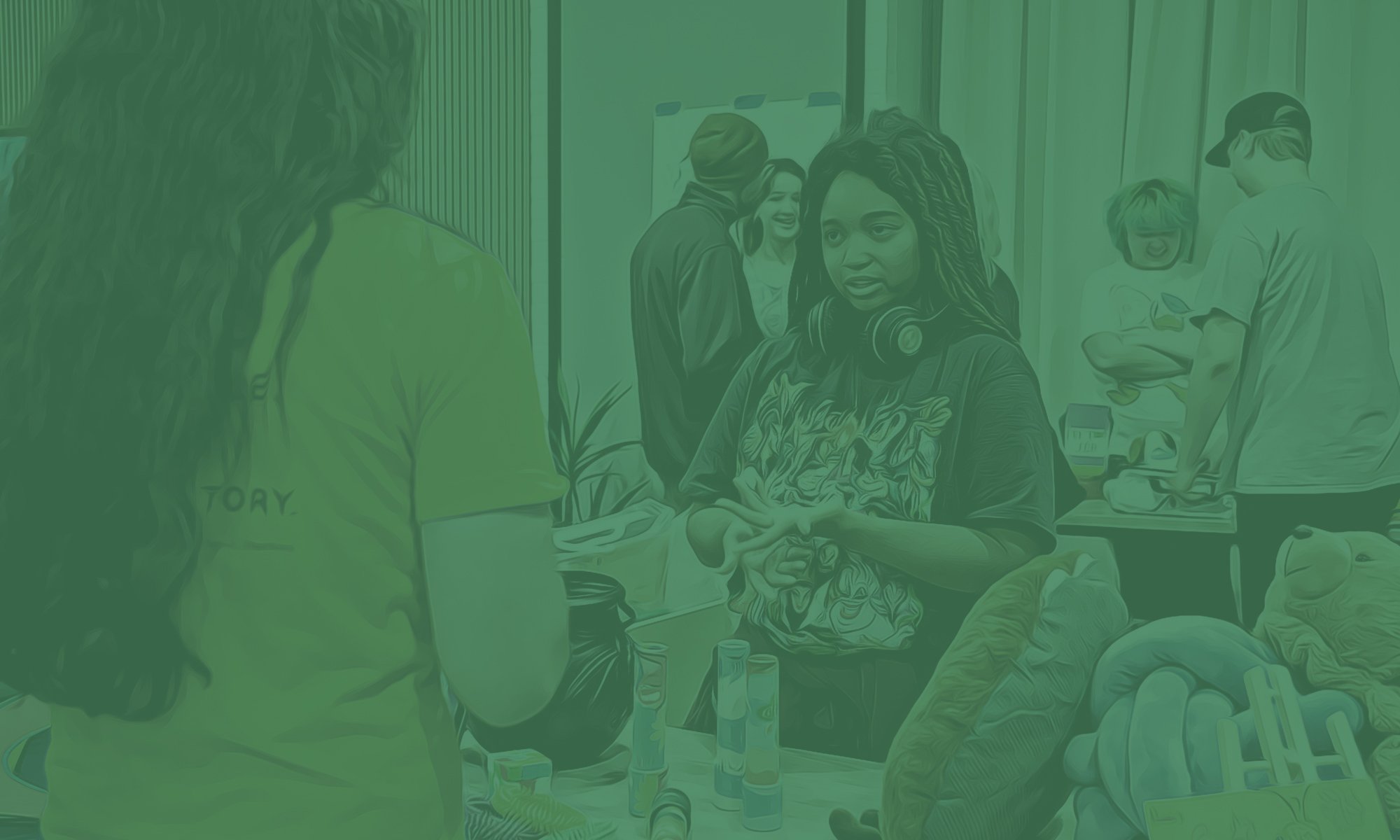
Poudre Global Academy senior Nevaeh Greene prioritizes mental health and wants to share the skills she’s learned with children
At Poudre Global Academy, Nevaeh Greene has loved working with young children both at the school and through the Early Childhood Education career pathway program at the PSD Futures Lab.
She is also a strong advocate for mental health well-being and has been working on figuring herself out. Through this work, she has come to realize that by first helping herself, she can better support others, including her friends, classmates, and the children she works with.
In the future, she plans to work in Early Childhood Education and help children by sharing with them what she has learned about being resilient and taking care of oneself.
Why is mental health so important to you?
I'm figuring out how to help myself, which I've never done before. As a kid I was like, we're going to take our feelings and put them over here, and we're going to help other people with their problems, and then we’re going to get back to our feelings eventually, but we never get to that. I've been working on getting to that.
I want to help people’s mental health by helping children's mental health. Then they will grow up with skills to regulate themselves and have good mental health and know how to help themselves. They will learn that when they are feeling sad, it's not a problem or a burden to tell people that. That is the thing I'm struggling with right now. I'm trying to help myself so that I can help the children. I think that if more people had one stable adult in their life, then they would be doing a little bit better.
What has your high school experience been like?
I moved from Alabama when I was in middle school, so I didn't really have time to do eighth grade, because I was still working on the whole, not being in the South anymore. Then, when I got to high school COVID happened.
The first half of my high school was online. Then, I decided to try out this whole in-person, normal school thing, because I had not done that before. That was horrible, so I came back, and now I am only in person at school two days a week, and that is much better for me.
So, in what ways has the online/hybrid model at PGA been better for you?
Yeah, because I can take a break to redo my social meter. I don't like not having anything to do, so I tend to overwhelm myself. I’m in eSports - we have a great community there and a lot of my favorite people are in that club. I do Early Childhood Education at Futures Lab and work at Teaching Tree Early Childhood Learning Center. I used to be in Student Council too.
On Tuesdays, Thursdays, Fridays, I go to Futures Lab and then home. Those are like decompression days, so I don't have to be around people 24/7. Because of my sensory processing disorder, I can't deal with too many loud sounds. I need to have my headphones on at all times. Also, textures and foods and different bright lights make me uncomfortable. So, if I can go back into my nice cool house, I don't always have to be on high alert, and that makes things easier.
How would you say you’re leaving an impact or legacy at your school?
Since PGA is so small - our graduating class will be 50 - I know practically everyone in the school. I think I'm leaving a legacy by helping to create an inclusive community where people are comfortable with other people. If we have an issue, then we help the issue. We have feminine products in the bathroom, a better selection I might add, because my friends and I petitioned to have more inclusive feminine products in the restrooms. We have a non-gender conforming bathroom. I want to have another one.
I also think I'm leaving a legacy on the elementary side because I worked there. Last year, I was a teacher aide for kindergarten, first, second, and fifth grade. I see a lot of those kids around, and I'm like, oh my gosh, look at my kids, look at them go. I'm so proud of them.
My goal is to leave an impact on children. Children are very important little things, and we should take care of them. Something really upsetting is Gen Z has one of the highest suicide rates in history, and we must stop that. I want to help the children, so they're not depressed like we are.
How has your school had an impact on you?
PGA has helped me to not feel so alone. I can make friends here because it's so small. The problem I had at (Fort Collins High School) was that it was a big school. If I didn't ask for help, I don't think anyone would have helped me. At PGA, they want to help because they like seeing you happy.
Something that I have a problem within humanity is that when your mental health affects others, they’ll help you until you're fine enough to not affect them anymore and then they’ll send you on your way. PGA’s staff check on you to make sure you're still doing alright. They want to see how you are doing today.
So, PGA helped me to not die a few times. There are a lot of people at PGA who don’t know that they might have saved my life.
How are you taking what you’ve learned throughout high school into whatever is next for you?
At the YMCA teen camp in Alabama, I worked with kindergarteners, and they were amazing little things. I was like, huh, children are cool. Here, I saw the opportunity to be a teacher. My counselor saw how much I liked children, and the things teachers do and asked if I wanted to do Early Childhood Education at Futures Lab.
I learned more about how working with toddlers and preschoolers is a career and have been doing work-based learning at Teaching Tree Learning Center. Exploring different career paths is fun, because now I know what to do with my life.
After I graduate, I will go to Colorado State University because it’s right here. I’ll study early childhood education. Right now, I have my assistant teacher certificate and if I do things right, I’ll get my lead teacher certificate at the end of the year. I could start working then, but my family has hyped up college for so long, I have to go. I will be a first-generation student. So, I have got to do it for that and for Black women. We’ve got to show them that Black women can do it.
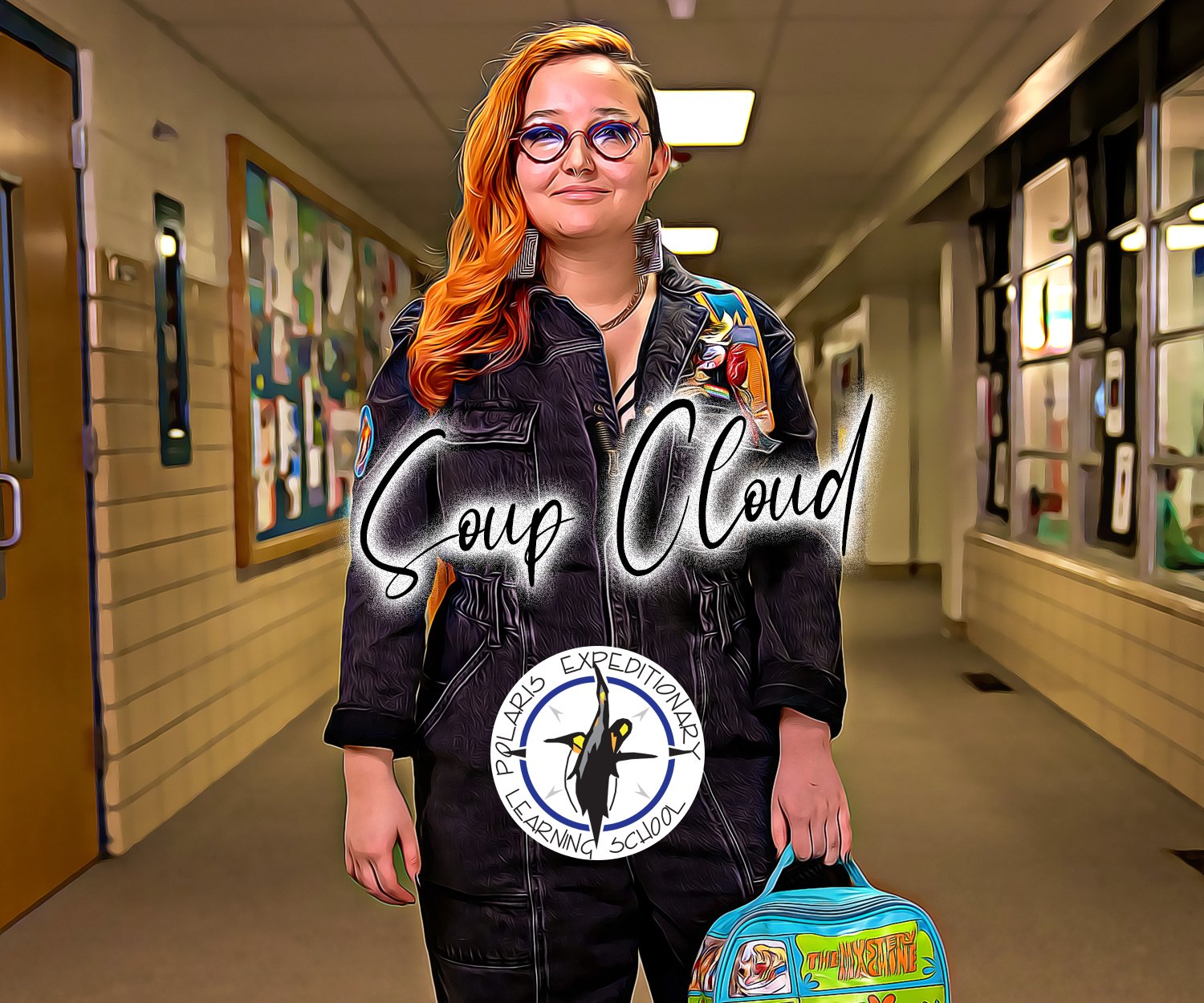
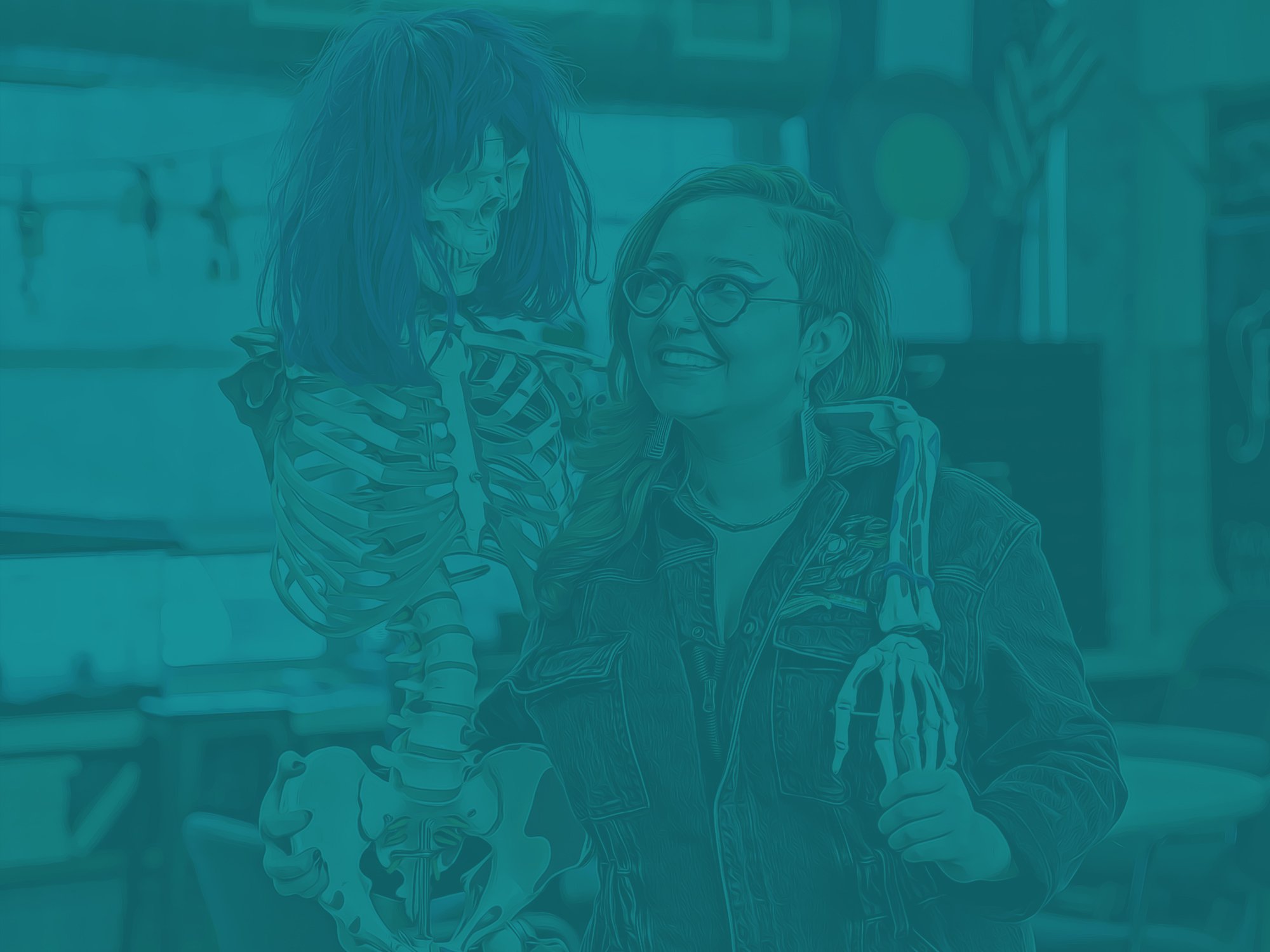
Soup Cloud
After six years at Polaris Expeditionary Learning School, Soup Cloud reminisces on their experiences and how it has helped shape their future as a soon-to-be first-generation college student.
Learn how Soup Cloud is leaving a legacy of joy on Polaris.
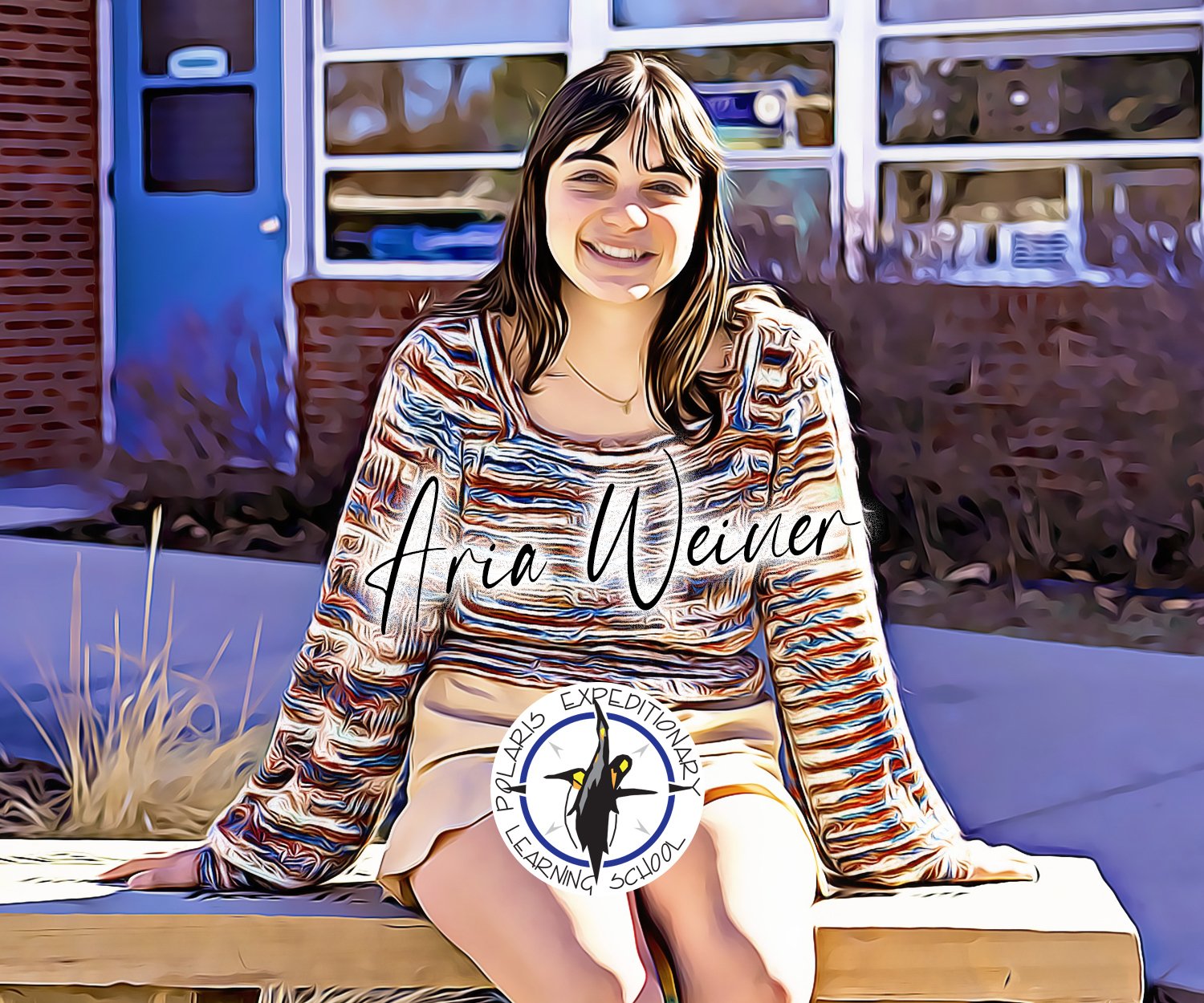
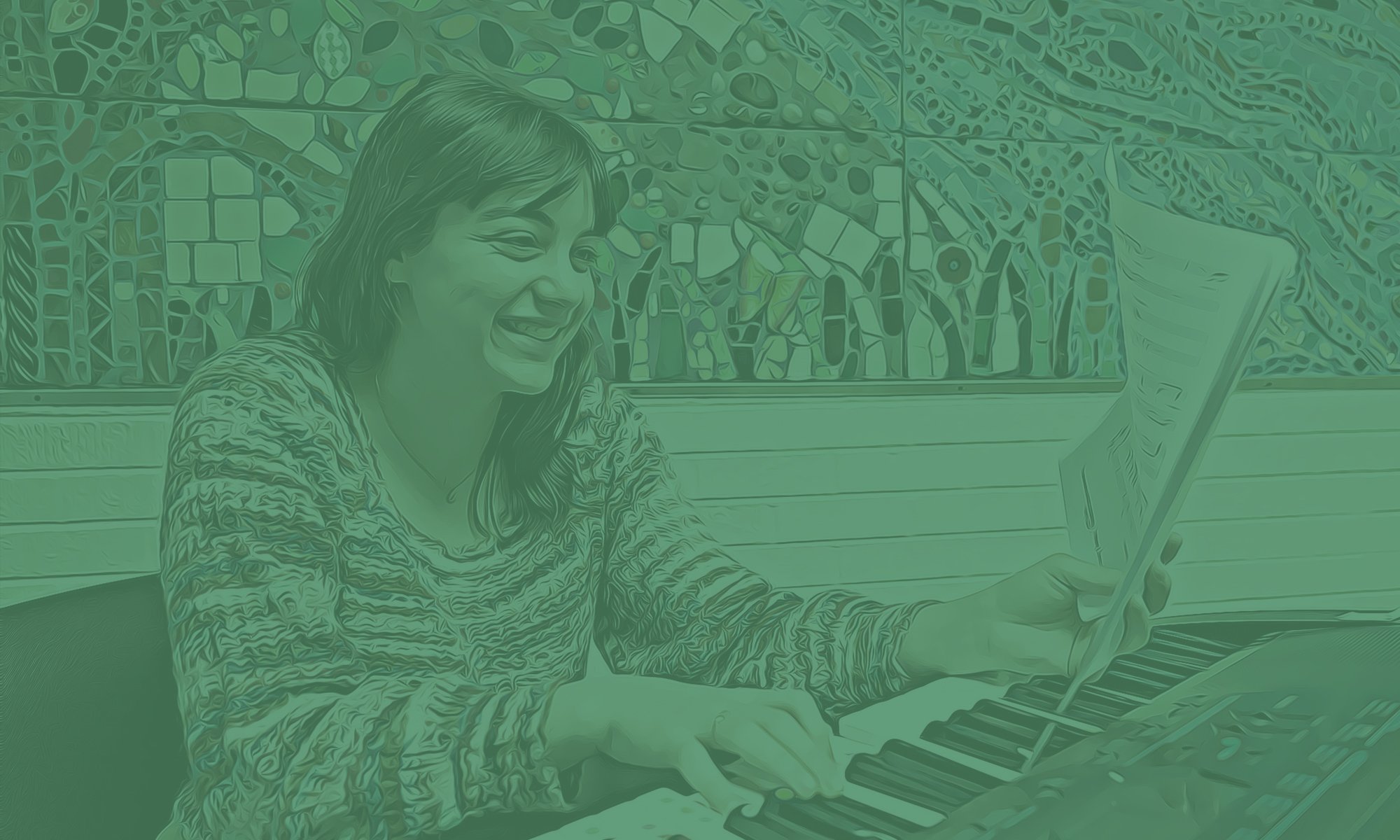
Polaris Expeditionary Learning School senior Aria Weiner finds her voice and passion for history
Since she started at Polaris Expeditionary Learning School in kindergarten, Aria Weiner has been active in her school and the community. From choir, aerial arts, school leadership opportunities, and academic pursuits, she constantly finds ways to showcase her vast skills and talents.
Polaris helped Weiner find her voice as a leader and passion for history as she prepares for college at Oberlin College and Conservatory of Music next fall.
What has your high school experience been like so far?
My high school experience has been different than others. I haven't been able to do a whole lot within Polaris, but because Polaris has the opportunity for their students to work with other schools, I have been able to join Poudre (High School)'s choirs because it's my neighborhood school. I'm in two of Poudre's choirs, Impalaphonics and Impromptu, and I've had a lot of fun with that. I have a very musical family and do a lot with music. I'm a singer, and I play piano on my own.
I also did the musical this fall, and I've mainly been doing stuff inside the community. I'm part of Fort Collins Children's Theater, which is musical theater. I'm part of Full Expression, a Dance Collective, a dance troupe that I do stuff with. For the first couple years of high school, before I got injured, I was also part of the Fort Collins Circus Center and did aerial arts.
How would you say you are leaving an impact or legacy on your school?
I feel like I've been a leader. I've been here since kindergarten, so I know way too much about the school. I love it and all the aspects of the community, and I feel like Polaris is so unique. We have a big field day at the end of the year, and last year, I was the main organizer of that. We had a fall spirit week field day, and I was one of the organizers. I do my best to try and help keep all aspects of the Polaris community up and running and valued in the community.
This year, we heard about the new consolidation plans that the district had in store, and Polaris was one of the schools that was being affected. We didn't necessarily think it was fair. It was very sudden. Some other seniors and I planned and led a walkout with about 300 to 400 students and community members. A lot of people spoke at board meetings. They decided to postpone the vote to consolidate the schools, and now there is a (Facilities Planning) Steering Committee coming up with new solutions for the district. I feel like this is the biggest legacy of the senior class right now. We value the community and environment that we have here so much.
How has your school had an impact on you?
The Polaris experience is unique because of the way they've done expeditionary learning and how we have K-12. We have such a strong community here, and I feel that is the main way we thrive. Without Polaris, I wouldn't be who I am today.
I have known since I was very little that I wanted to be a teacher. I love helping others, and I am a total nerd. I love learning. I got to high school with our history teacher, Liz (Melahn), she’s incredible, and I’ve taken almost all the available history classes that she has — the only classes I have right now are with her. I realized that history is my favorite thing to study with the openness in Polaris’ curriculum, and the teachers provide a lot of trust and support for whatever you want to study.
For a U.S. history project, I studied the impact of World War II on United States antisemitism. Because I'm a Jewish student, I care about religious history. It is my main focus. I've done projects on Islamophobia and Holocaust denial. I've been able to take my interests and funnel them into the rest of my work, and all the teachers here are just so supportive of that.
I don't think I would want to be a history teacher or love it as much as I do if I didn't have the Polaris environment. Liz and the middle school history teacher Mikole (Grindel) have inspired me, and I can definitely see myself as a history teacher.
How are you taking what you have learned into what is next for you?
Polaris has allowed me to become a leader. I'm very outspoken and vocal about what I feel is best for me, other students, and the community. I feel like I'll be able to transfer that as I head to Oberlin College and Conservatory of Music in Oberlin, Ohio, next fall. It is a very small, close-knit, and hands-on community. I'm excited to be able to be a voice and help support others. I feel like if I didn't have that small environment here where people know me and trust me, I wouldn't be able to do something like that in the future.
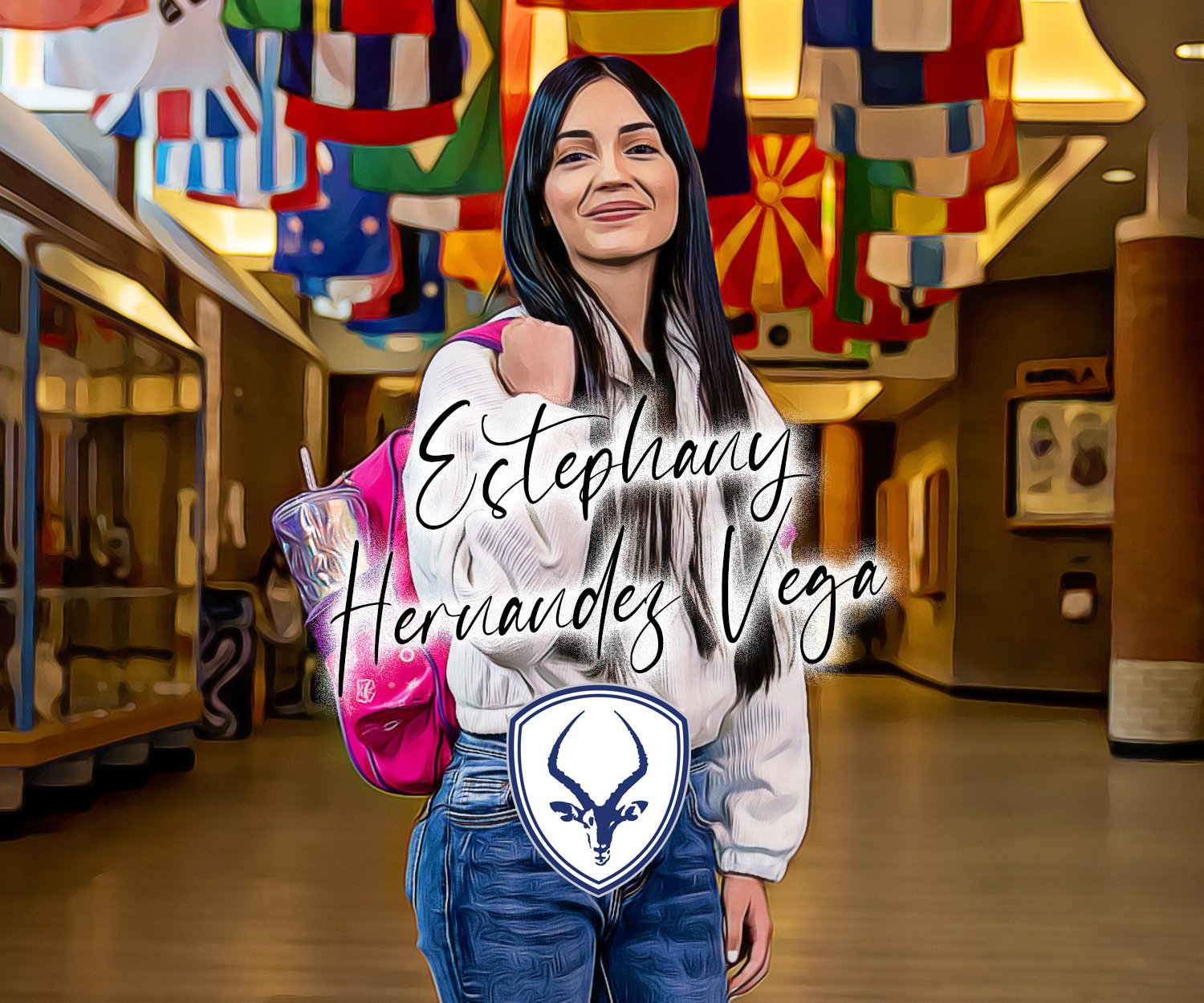
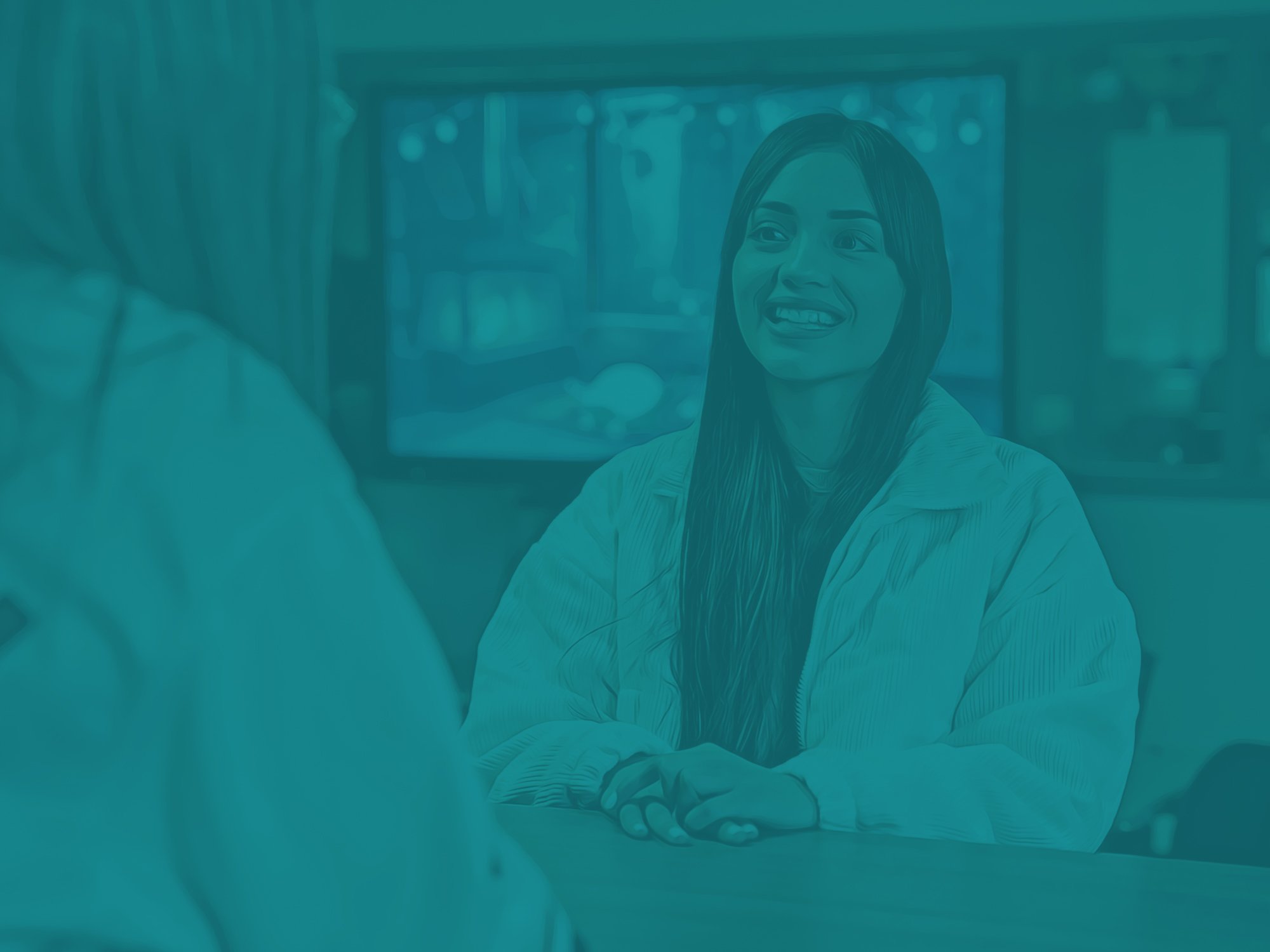
Estephany Hernandez Vega
Estephany, a senior at Poudre High School has been an influence on her community but also the staff at Poudre High School. Her legacy is a testament to the power of the bonds we share as a school community. Here's to celebrating her achievements and the bright future she has paved at Poudre High School!"
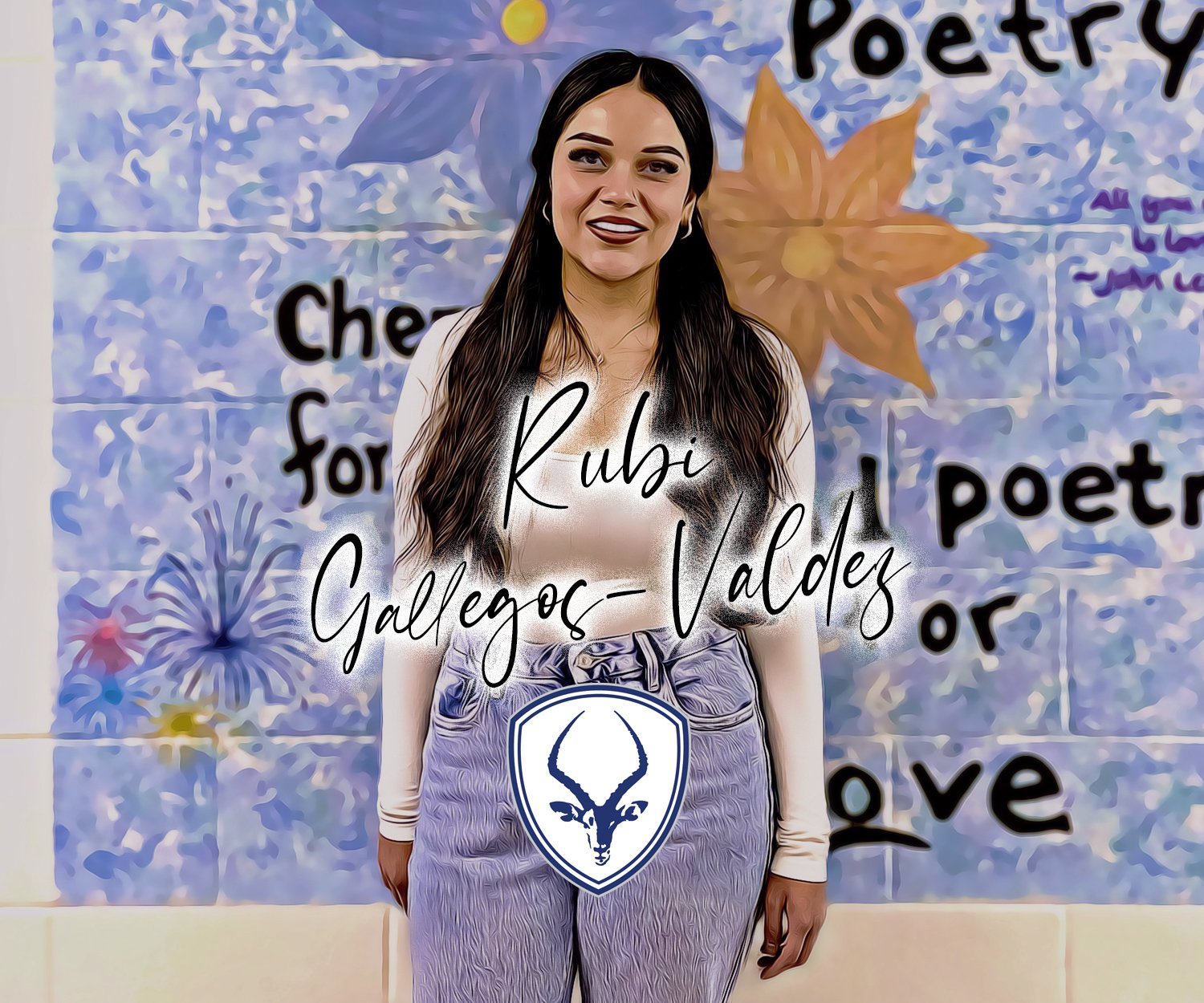
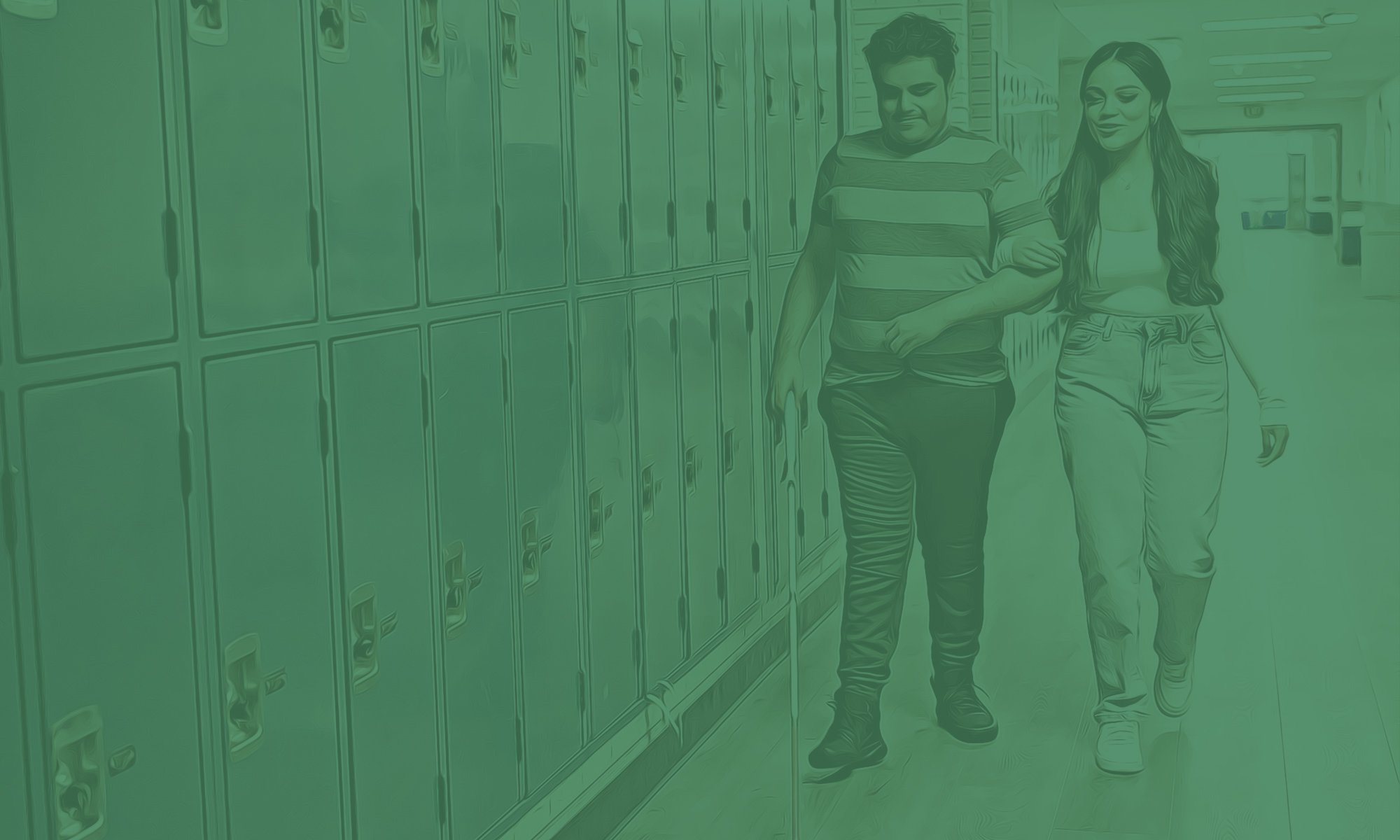
Rubi Gallegos-Valdez finds success in academics and a passion for healthcare at Poudre High School
Rubi Gallegos-Valdez is leaving a legacy as a quiet leader at Poudre High School. Even though she might not always raise her hand in class, she has a passion for academics and works to make every opportunity count.
After facing and overcoming adversity, she shows that life is about building bridges and using your resources to figure out how to take the next step.
Having already earned her Certified Nursing Assistant license with plans to be a nurse, Gallegos-Valdez will graduate high school with a Seal of Biliteracy and 43 college credits, already making her a sophomore in college.
What has your high school experience been like so far?
My high school experience has been great. I've been able to adapt and enjoy Poudre. I've also connected with teachers and built trust and bonds. I've gotten to the point where some of my past teachers have become my greatest motivators, such as Ms. (Jen) Musci and Mr. (Alan) Flores.
Once you get to high school, the expectation is to meet new people, and I've met some wonderful people who have turned into family. With them, I've created memories and enjoyed life a little bit more. Even though high school does have its ups and downs, I've been able to manage, and I know that it will all be worth it in the end.
How are you leaving a legacy or an impact on your school?
I hope to leave an impact by being a quiet leader. Not only that, but also being a good human being by connecting to people, helping them, and going above and beyond.
I have a strong passion for the medical field, and I know that I left an impact in those classes. With every encounter I have with my teachers, they always ask me what I want to do once I graduate. My big dream is to be an RN travel nurse. That's where my CNA and phlebotomy courses start to come in. Throughout my four years of high school, I've always done college credit classes, and I started AP classes my senior year. I have a full schedule, and after school, I go to Front Range (Community College) as well. I’m grateful Poudre offers these opportunities.
At 16 years old, I became a CNA, and now I'm working towards finishing my phlebotomy course. I've realized it's more than just having a career. It's one of my passions. It's more than making money. It's being able to help other people and support them. I know that being bilingual also benefits people since they feel more understood and like they can go in there and get help. I want people to feel at home and not judged.
How is culture and family important to you?
I have two older sisters, an older brother, and two younger brothers. There's six of us in total.
One thing that not many people know about me is that my three brothers are disabled. The three of them are blind. One of my biggest motivations has been them and being able to be their caregivers at some points or to support and motivate them.
My parents are both from Mexico. For us, culture is important, and I've learned to embrace it more. My first language was Spanish. In elementary school, it was a little complicated to communicate with teachers or make new friends. Even though I've been talking English for a while, and I was born here, there's times where I do mix up, and I have my accent. That just shows that it's part of your culture too and identity.
There was a time where I had to learn a lot more English, and they pulled me out of classes in kindergarten. I remember because I have two older sisters, so they spoke English very well, and they were born here too. I wouldn't embrace my English. I would feel judged that I have an accent. There were times when teachers would get surprised when I would talk, and it would be normal sentences. I would be confused why they're so surprised, but I still wouldn't really talk.
How has Poudre High School had an impact on you?
Poudre has helped me get engaged, and it feels like a community. The biggest impact is my teachers because they focus on you as a student and as a human being. They meet you where you are. They want to see you graduate and know the potential we don't always see in ourselves. Taking those classes offering college credit showed me that I'm capable of continuing my education after high school. I realized I not only have the brains for it but the dedication.
What is next for you after graduation?
My classes have shown me that I want to continue my education and study in the medical field.
I love learning and education, and I strive for good grades. That’s one of my biggest motivations. I’m glad for all the classes I’ve taken, and all the experiences I obtained because it has brought me to where I am and made me the person I am today.
Gaining higher education (experiences) made me realize that nothing is impossible. Once you put your priorities straight, things will align. If you start now and work for the future you want, you will get it a lot sooner than expected.
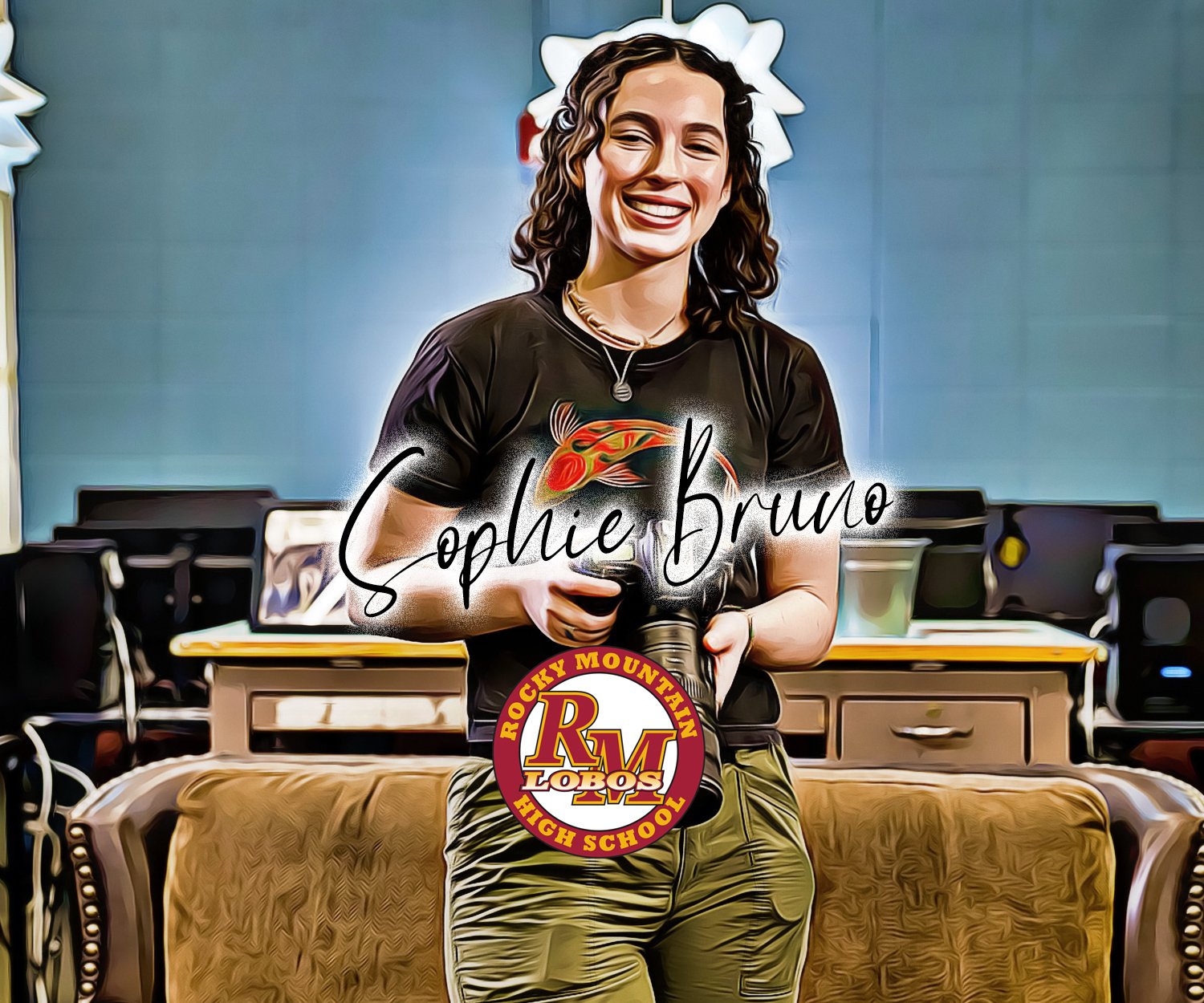
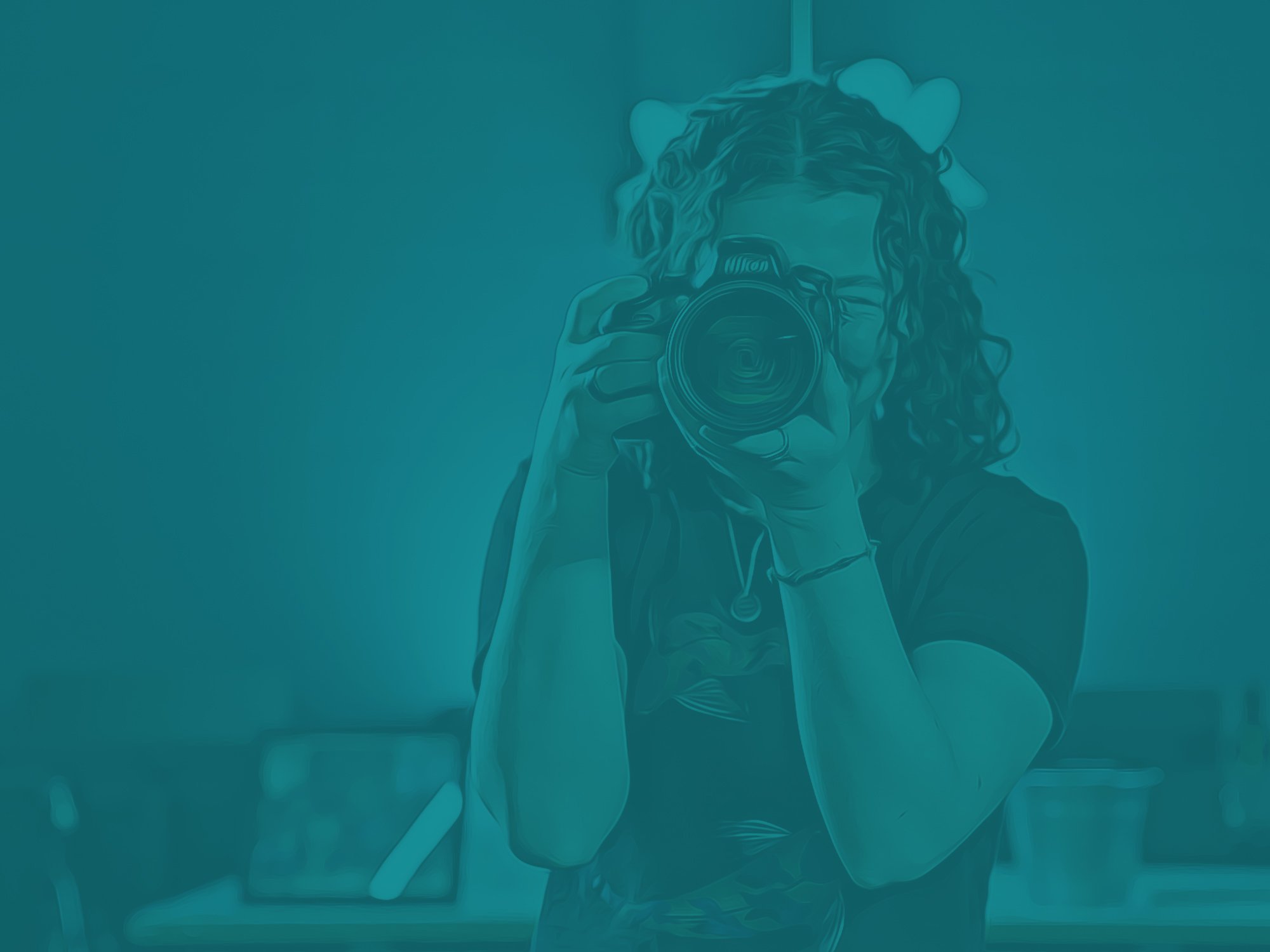
Sophie Bruno
At Rocky Mountain High School, senior Sophie Bruno doesn't just capture footage; she's cultivating a community where everyone has purpose and belonging. Learn how Bruno leaves a legacy in Rocky's video room and how her school has given her meaningful life lessons.
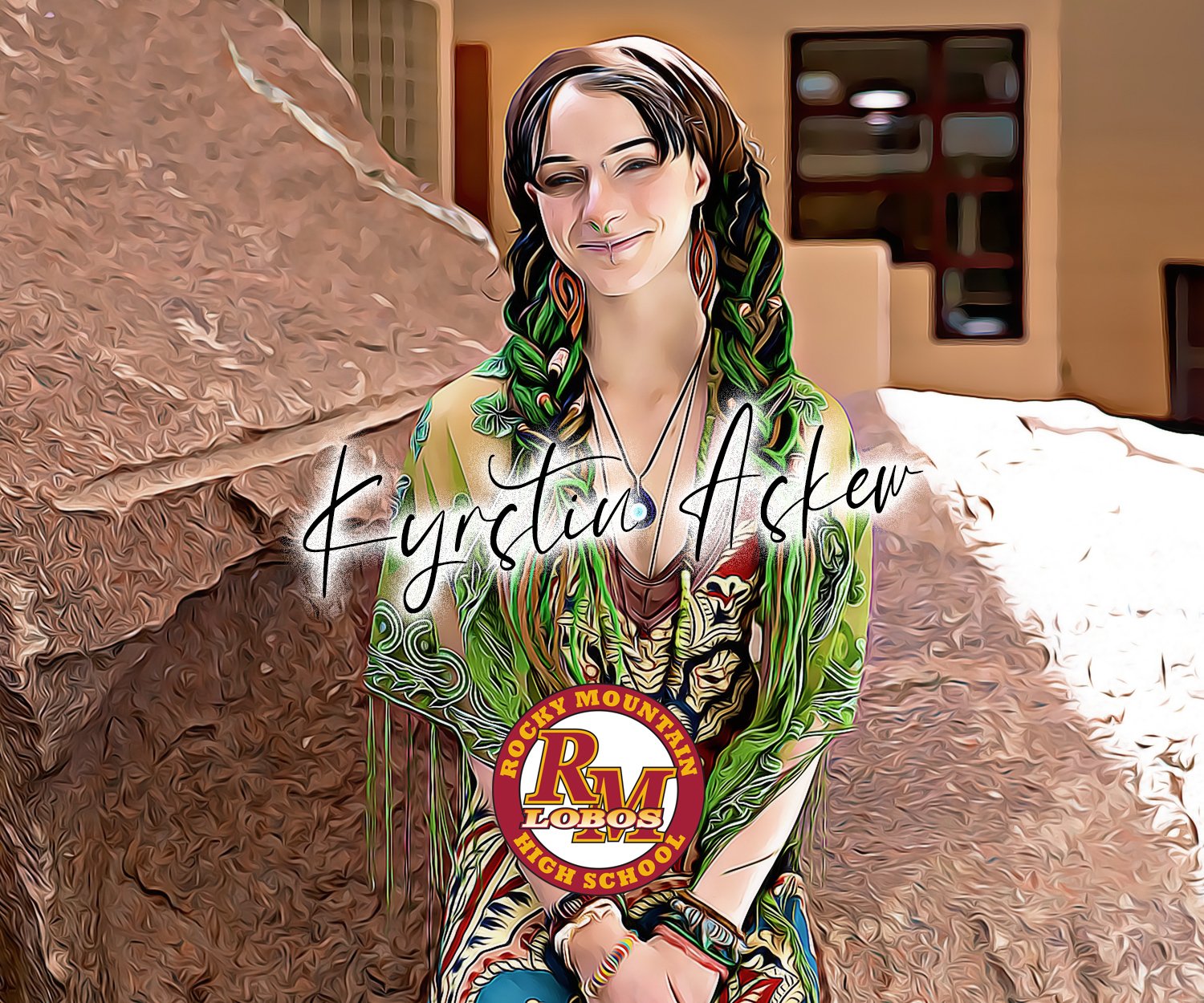
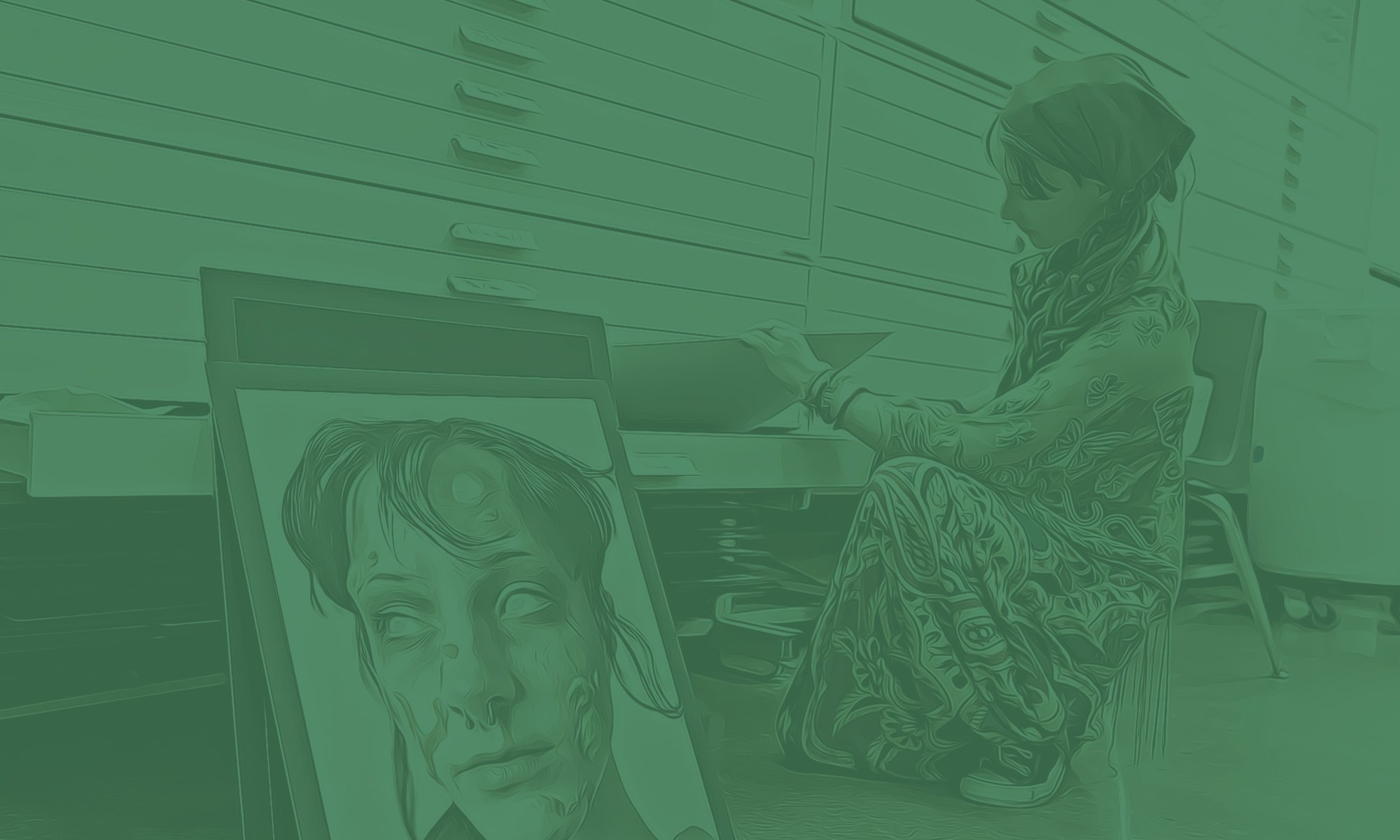
Kyrstin Askew graduated from Rocky Mountain High School in January, but her impact at school lives on
Reframing her own struggles and negative experiences into a positive impact inspired Kyrstin Askew to talk to her classmates about eating disorders and start an Eating Disorder Alliance. She still visits Rocky Mountain High School weekly for club meetings while also taking classes at Front Range Community College, where she enjoys the flexibility of taking classes in art, psychology, and American Sign Language.
What was your high school experience like?
I was on the dance team for two years, which was a really good experience. I got to go to all the games and be part of the spirit leaders. Just getting to see how riled up Rocky students get about their school, it's empowering. I took a lot of art classes. I took AP Art and won a Gold Key Scholastic Portfolio Award for one of the pieces I did in class, which was really exciting.
How have you made an impact at your school?
Last year, I started giving a short, informational presentation about eating disorders to various classes in the school. I wanted to bring it into the community more and make it a bigger operation, so I started the Eating Disorder Alliance (EDA), a support group for people who struggle with food. That's been really, really meaningful to me. I feel like I've created a safe space for people to just talk about the issues that they have and seek support.
I’m hopefully encouraging people to have a more open mind about things that they don't understand, specifically psychiatric illnesses like eating disorders. All of that stigma stems from a place of not understanding. I hope that with the things that I've done for Rocky, and at Rocky, I am educating people and making it a bigger conversation.
What impact would you say Rocky has had on you?
The staff has had the most positive impact on me. I've made a lot of accomplishments in the past couple of years, and I really owe it all to Duke (teacher Jay Dukart) and the teachers and staff members that supported me and encouraged me to keep going with my goals.
I think that negative interactions at Rocky have also impacted me positively. Because just getting to experience firsthand what it's like to be bullied for an eating disorder, and for your body, and seeing how other people are treated really made me realize that none of these people truly have malicious intent. They just don't get it. That revelation, and those interactions with my peers really is what encouraged me to start educating people about eating disorders and talking about that kind of thing.
Another thing that's impacted me massively is the opportunity to go to a high school that has the best art department ever, in my opinion. None of the things that I've learned how to do with my art, and none of the things that I have accomplished would have happened if Rocky didn't have this amazing art program that allows students to have full creative freedom and really push themselves to grow.
How are you taking what you’ve learned from Rocky and your other experiences into whatever is next for you?
The kindness and community that I got to experience at Rocky is something that I'll carry with me forever. Just the ability to go into the library and go up to somebody and start talking. That welcomeness built my confidence, and it allowed me to put myself out there and talk to new people, and that's something that I'll carry with me.
What are you doing at Front Range Community College now that you have graduated, and what has postsecondary education been like so far?
I started at FRCC three weeks after I graduated high school in January. It's a rocky start, I'm not going lie – going into college right out of high school is tough. Everything gets really hard, really quick, but there's just something about college that's so freeing. Everybody who's there is there because they want to be, and they're interested in what they're doing and what they're learning about. That's been especially true for all of my art classes. All of the people that I go to those classes with have completely different styles, different skill levels, and I can learn and be inspired by everyone around me the same way I was in my AP art class.
What’s next for you?
I'm doing a TED Talk on May 1, and that's huge. The fact that I was able to have the opportunity to give those presentations for classes at Rocky is what got the attention of TEDx, and that's the reason that I have the incredible privilege of being able to give an actual TED Talk about my story.
I have gotten a lot of support from my teachers regarding my TED Talk. I have my public speaking teacher who's been helping me rehearse it and my English teacher who's been helping me revise it. The staff at FRCC is similar to at Rocky in just how supportive they are of their students.
I really hope that Rocky students go to (TEDxMountain Ave) because it's free for PSD students. That would be a big way, in my opinion, for me to leave a legacy here.
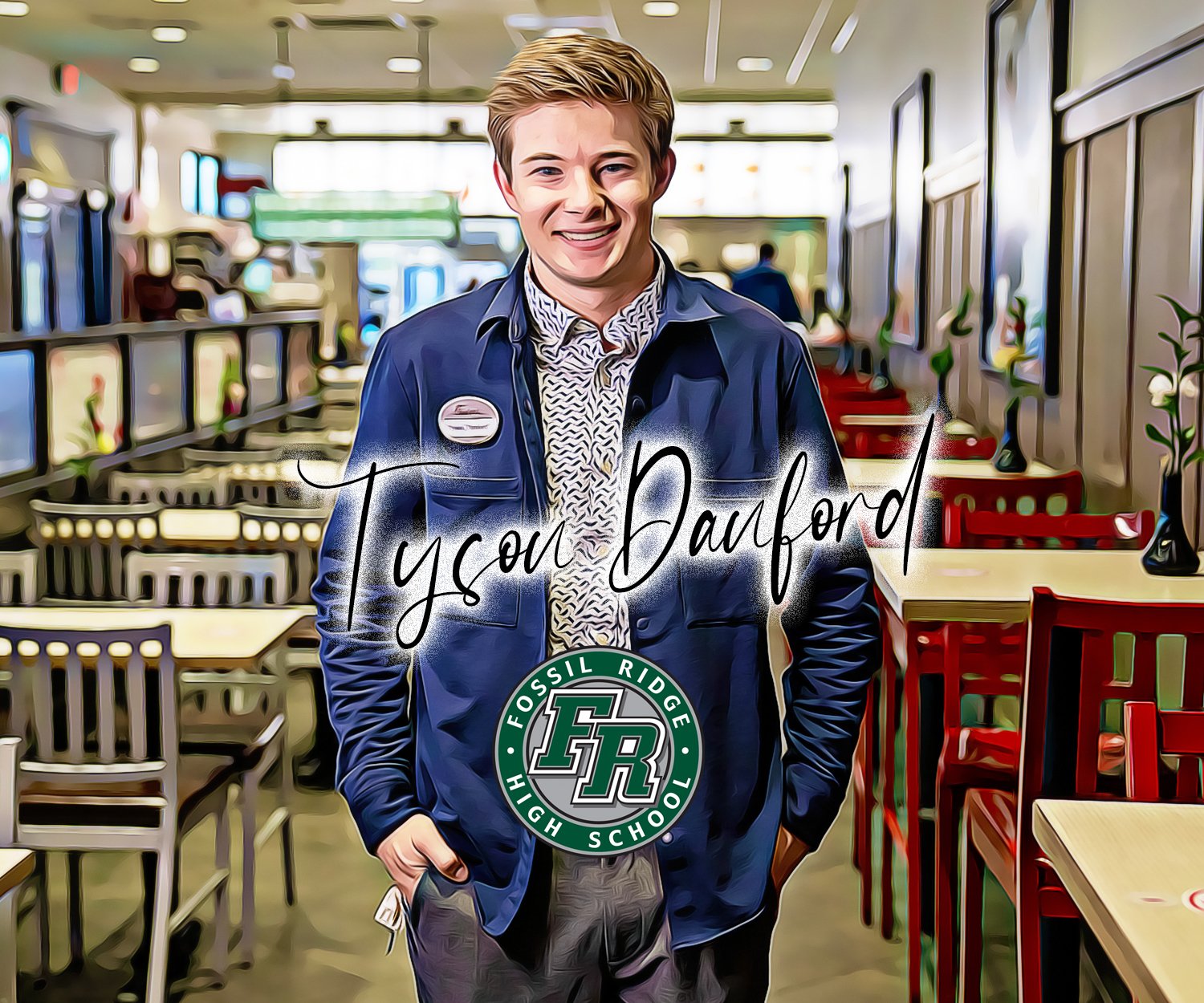
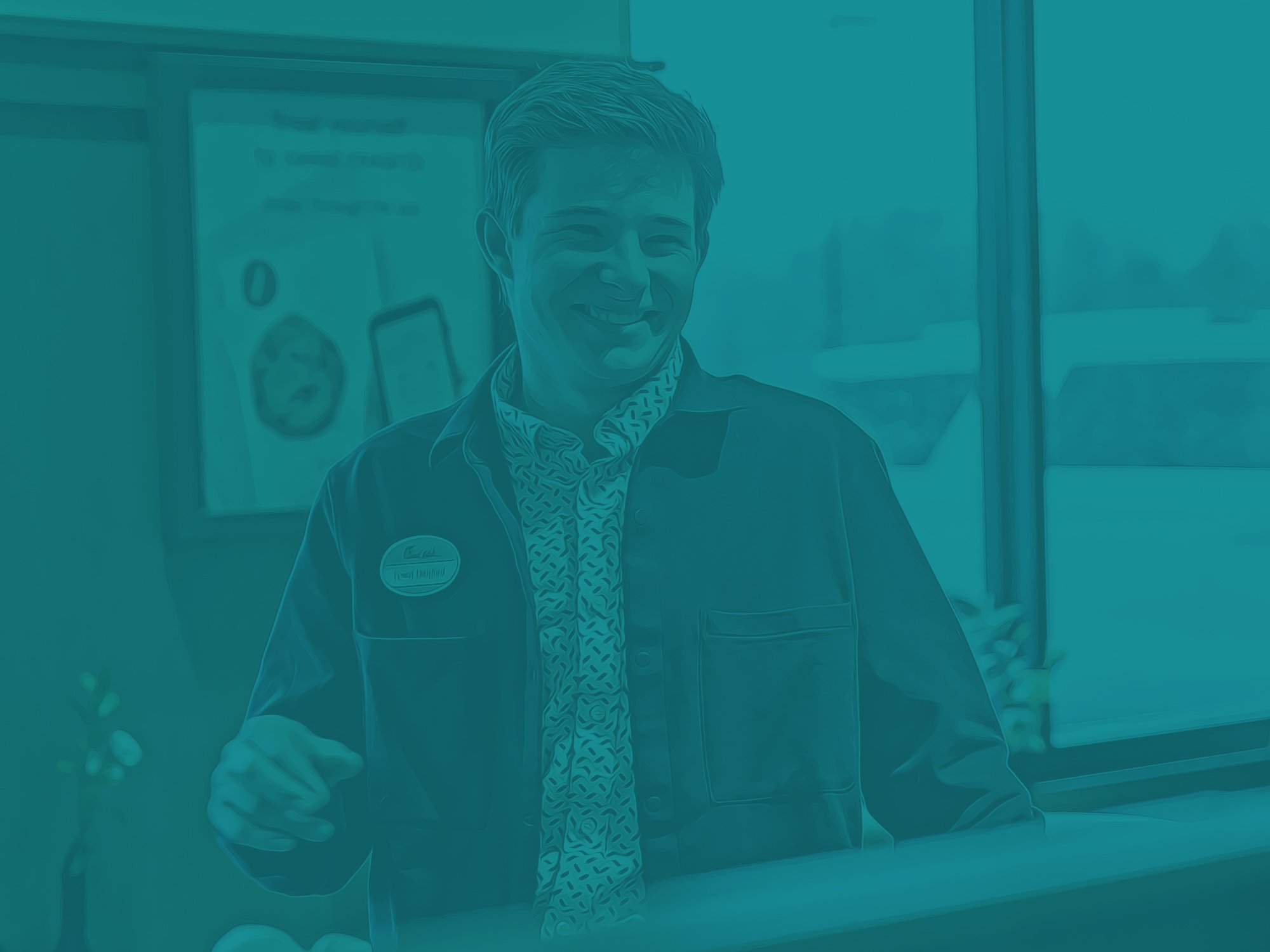
Tyson Danford
Being a Chick-fil-A restaurant manager while graduating high school wasn't easy, but Tyson Danford has supportive teachers and counselors at Fossil Ridge High School leading him to success.
See how Danford leaves his legacy by showing others they can do anything by working hard and asking for help.
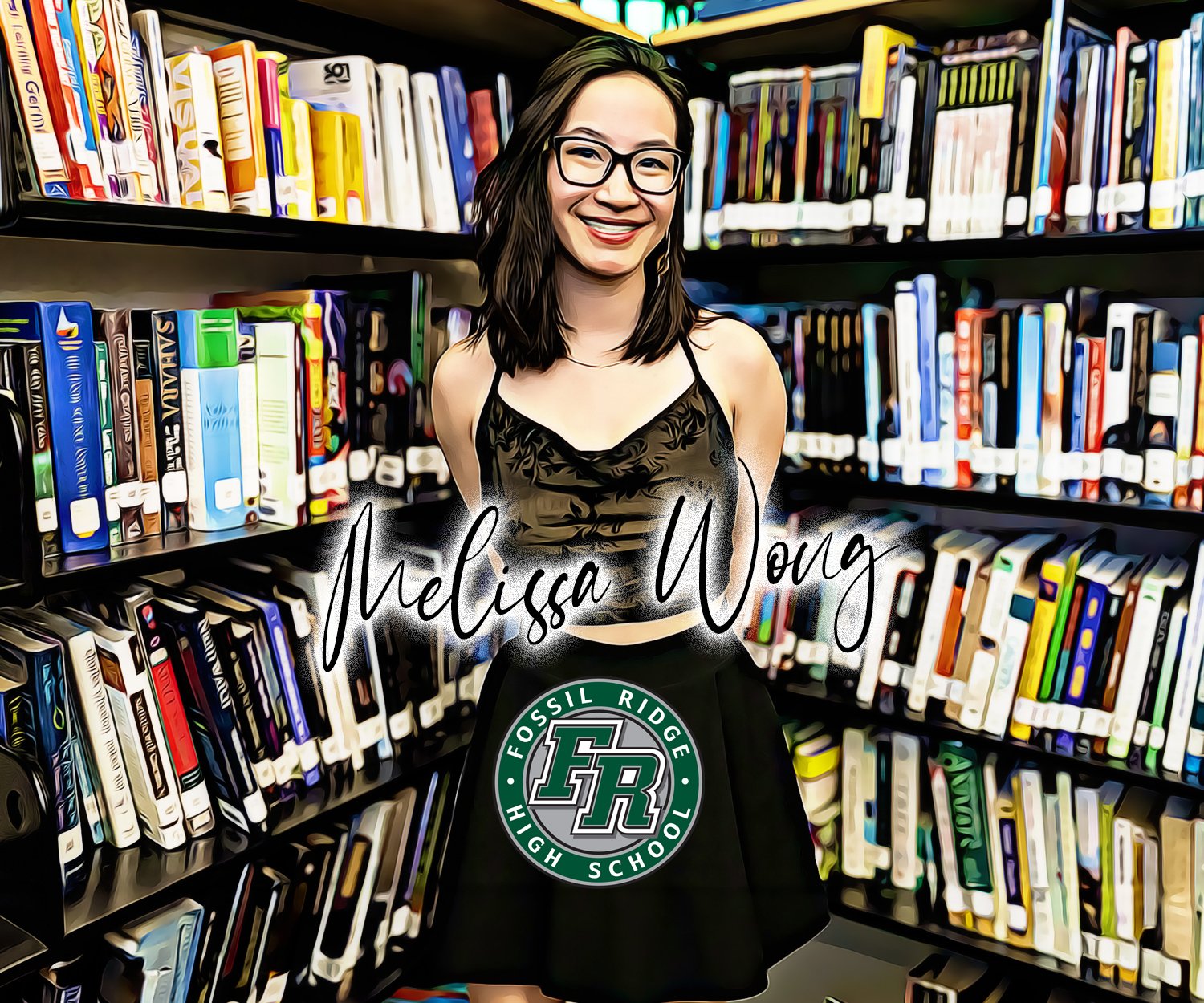
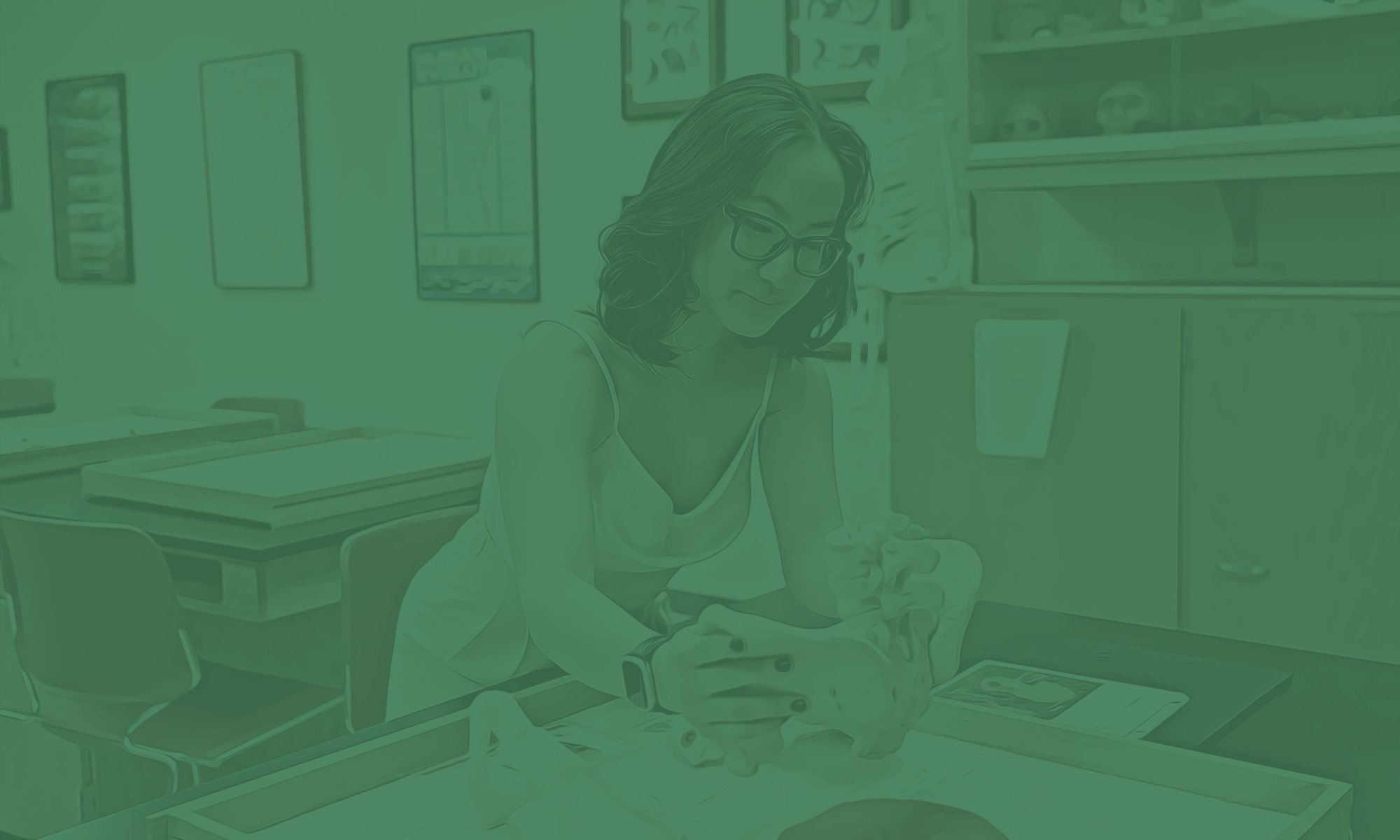
Fossil Ridge High School senior Melissa Wong bridges STEM, liberal arts and community impact
Melissa Wong sees the value of community wherever she goes. From Fort Collins to Shanghai, to California, and back, she has learned many valuable lessons.
Active in academics at Fossil Ridge High School and the community as a volunteer, Wong is leaving a legacy by looking through the lenses of anthropology, biology, linguistics, history, and more to analyze the world and remind us that community matters.
What has your high school experience been like so far?
I'm mostly involved in academics. You can usually find me running Honor Society events or in AP classes. I also run (my school's chapter of the) National Social Studies Honor Society, Rho Kappa, and I'm a participant in Science Olympiad.
In those activities, I find myself taking up a lot of leadership roles through organizing activities to increase student engagement and, overall, giving other people the chance to experience what I did at school.
Outside of school, I'm a part of a lot of community organizations. I always try to find time to help people, to engage my community, or just learn something new. For example, one of my main commitments is tutoring Ukrainian students in English through ENGin. Through this program, I've made tons of new friends and explored my teaching skills. I'm also part of Make-A-Wish Colorado's Youth Leadership Council, co-founded a music program, Youth in Tune, for the Harmony Village Boys & Girls Club, and cater at weddings.
How would you say you are leaving an impact or legacy on your school?
When I was younger, I moved from place to place. I was born in Fort Collins, moved to Shanghai, China, lived in California, and now I'm back here.
I was really scared of living life to its fullest as a child. I was caught up in this transience of life, so I was afraid to join clubs or make friends because I thought they would go away.
From my travels, I've learned that ephemerality isn't something to be afraid of. Now, it's my second time (in Fort Collins), and I have another chance to leave my legacy. I want to be that person who can plant those seeds of growth for what can be.
As someone intrigued by the social studies, anthropology and archaeology especially, I don't find a lot of people to share these passions with. At school, I founded a social studies National Honor Society. Before I came to Fossil, I noticed tons of honors societies for all academic subjects, but social studies was left out. Students like me, who wanted to explore these fields didn't get that avenue through clubs, so I started the National Social Studies Honor Society, Rho Kappa, to encourage that passion for social studies.
How would you say that your school has had an impact on you?
Throughout my life, I've been involved in many different school environments. What I love about Fossil Ridge is that there are so many people to meet. Above everything else, this school has taught me about community.
There are many avenues that have opened up to me at Fossil. For example, at STEM Academy, it was highly encouraged for students to take up internships with local professors. I initially looked into the "sciency" stuff, but that would leave that passion behind for the liberal arts. Anthropology blends my interests in linguistics and how humans interact with each other. I stumbled upon a field called biological anthropology, and from there on, I took up an internship as the first intern for (Colorado State University’s) Anthropology and Geography Department. I cataloged shipments of human bone and primate casts over the summer with graduate students. I learned all about how anatomy intersects with anthropology. That sparked my interest in the social studies.
How did your internship inspire you to start Fossil's chapter of the Rho Kappa National Social Studies Honor Society?
I wanted to share this incredible experience I had over the summer at CSU while working in biological anthropology. So, I reached out to my AP Human Geography teacher, Emily Cooper, about starting my Social Studies National Honor Society. Mrs. Cooper has been a pivotal person in helping me achieve my goals and sharing my passion with other students at Fossil Ridge.
What is next for you after graduation?
My future lies in the intersectionality of all things. I love STEM, but I would never leave my passion for liberal arts behind.
I’m committed to (The University of Colorado Boulder) as a double major in Computational Linguistics and Biomedical Engineering, with a pre-med concentration. I’ve lived all over, but it’s time to finally call Colorado home.
The communities I've found in high school taught me that impact matters and people matter. Even when I go off to college, I will still find communities to fit into.
Within those communities, I can make that impact. Whether it's volunteering, becoming a leader, being a self-starter, or something that a community has never seen before.
Anything else you would like to add about your experiences?
Lessons from language: I’m Cantonese, and I speak Cantonese at home. I speak Mandarin. English and French too. I've dabbled in Latin and Spanish. Morse Code, if that counts as well. All these languages are distinct in their grammatical patterns and syntax, but they all come together under an umbrella of linguistics and how people communicate. That communication is an analogy for how there's common ground between everybody.
I grew up in an environment where there were so many cultures, different socioeconomic classes, and varying interests. This variety of people has taught me to treasure diversity in this world. I'm able to look beyond the superficial differences of race, socioeconomic status, and all sorts of things, to see that beyond that, everybody’s human and can use a little bit of your love.
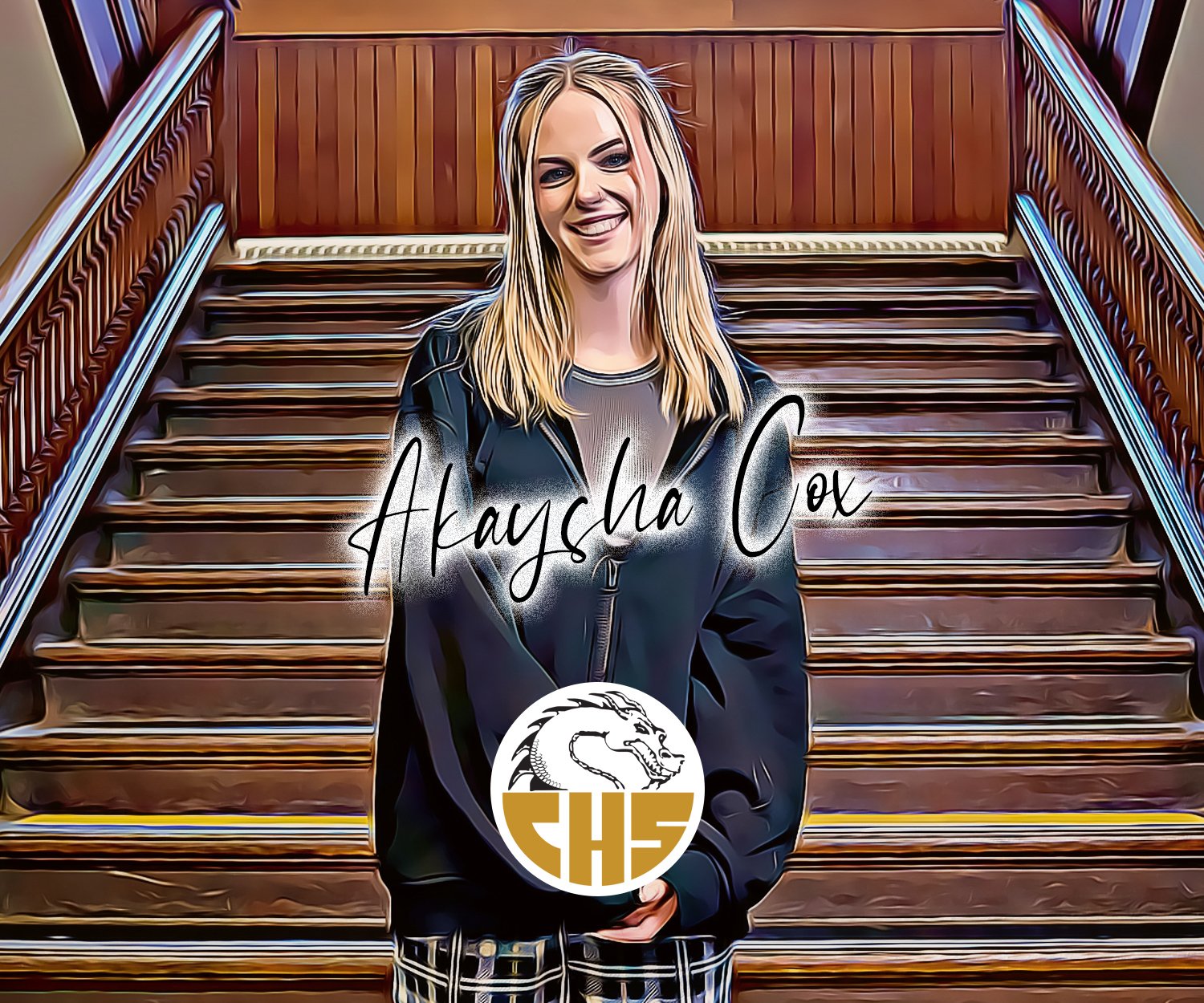
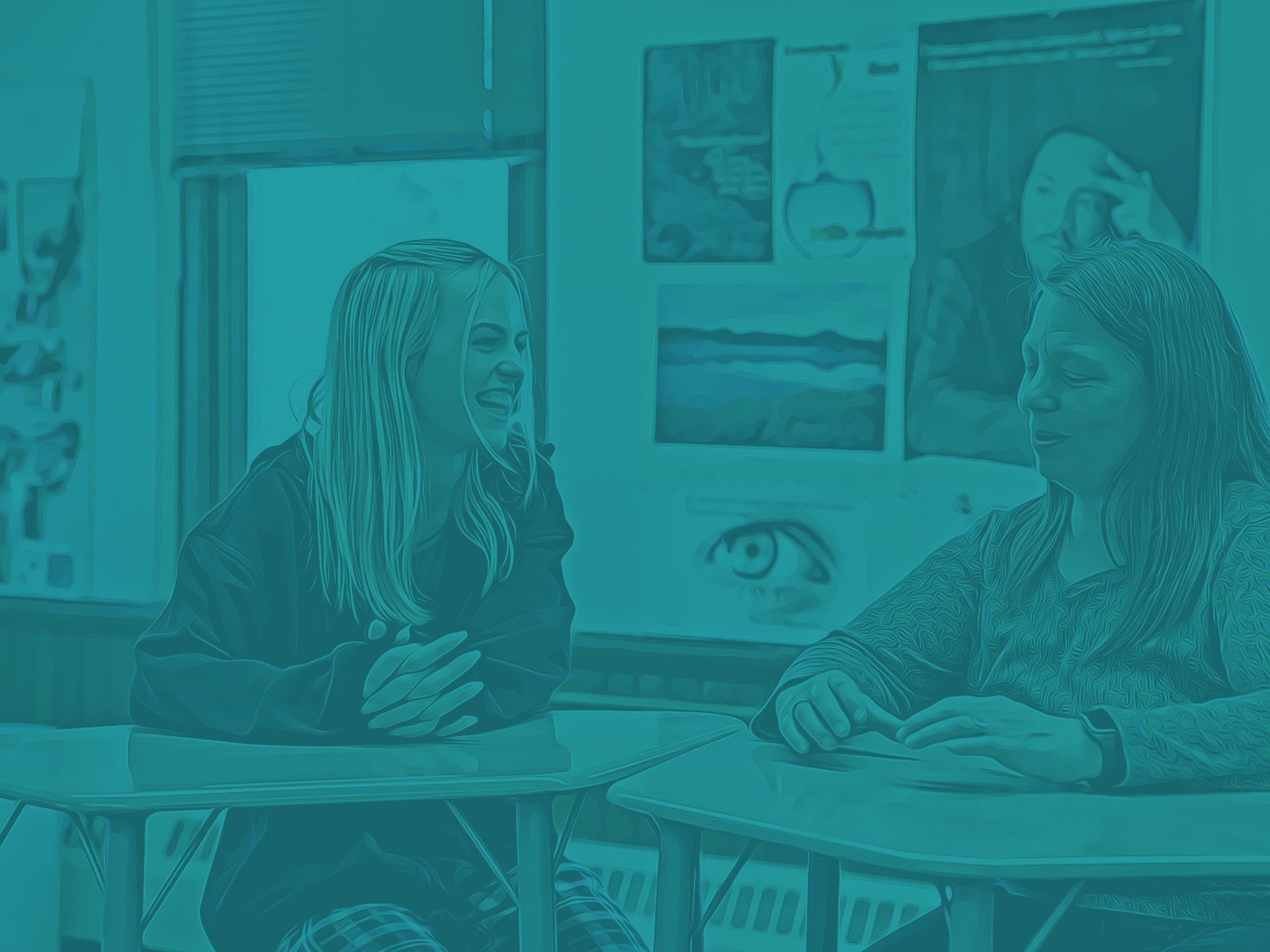
Akaysha Cox
Senior Akaysha Cox has a deep connection to Centennial High School. From attending her mother’s alma mater to forging a legacy of her own, Cox has found a community where she thrives and finds the drive to conquer each day.
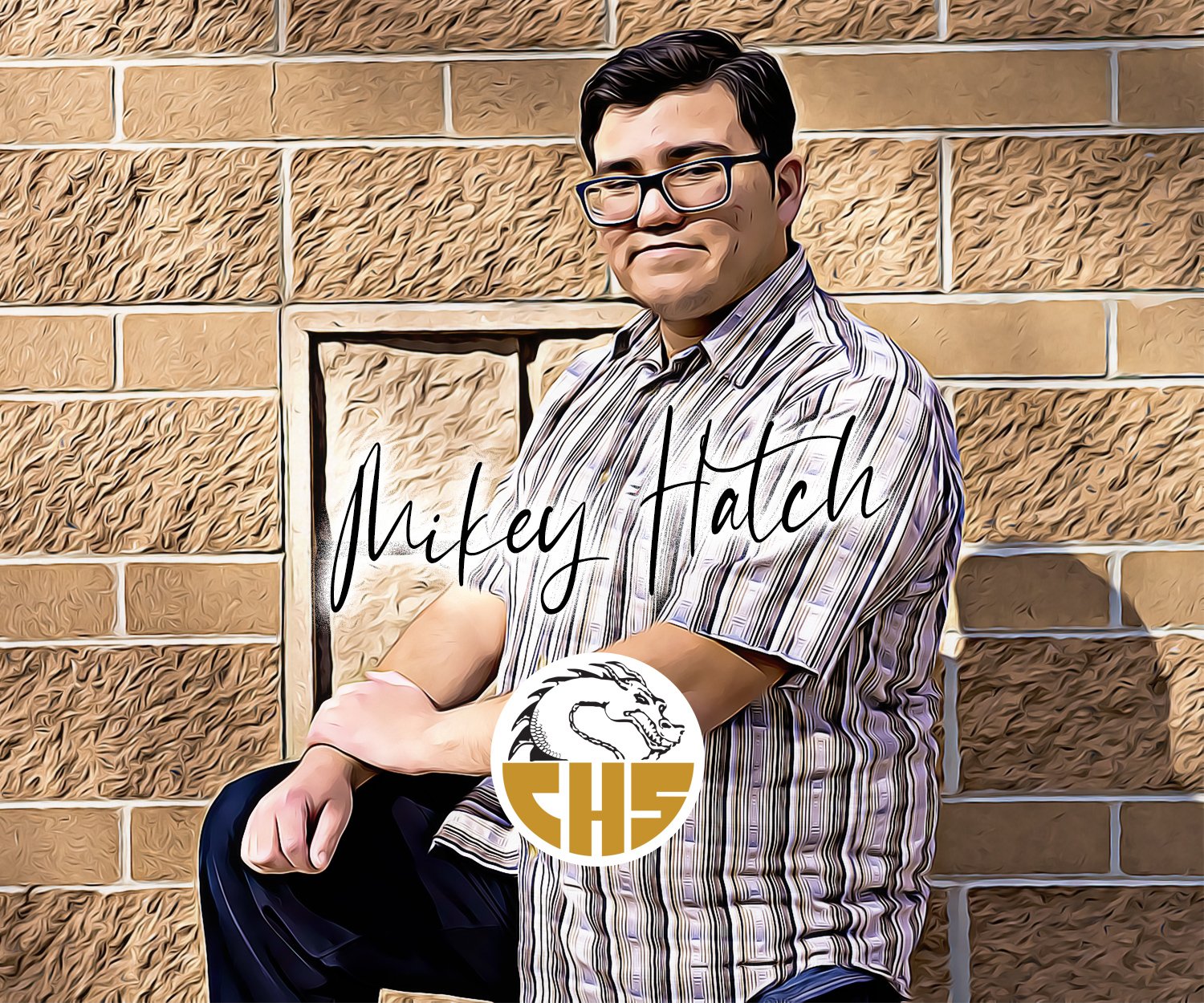
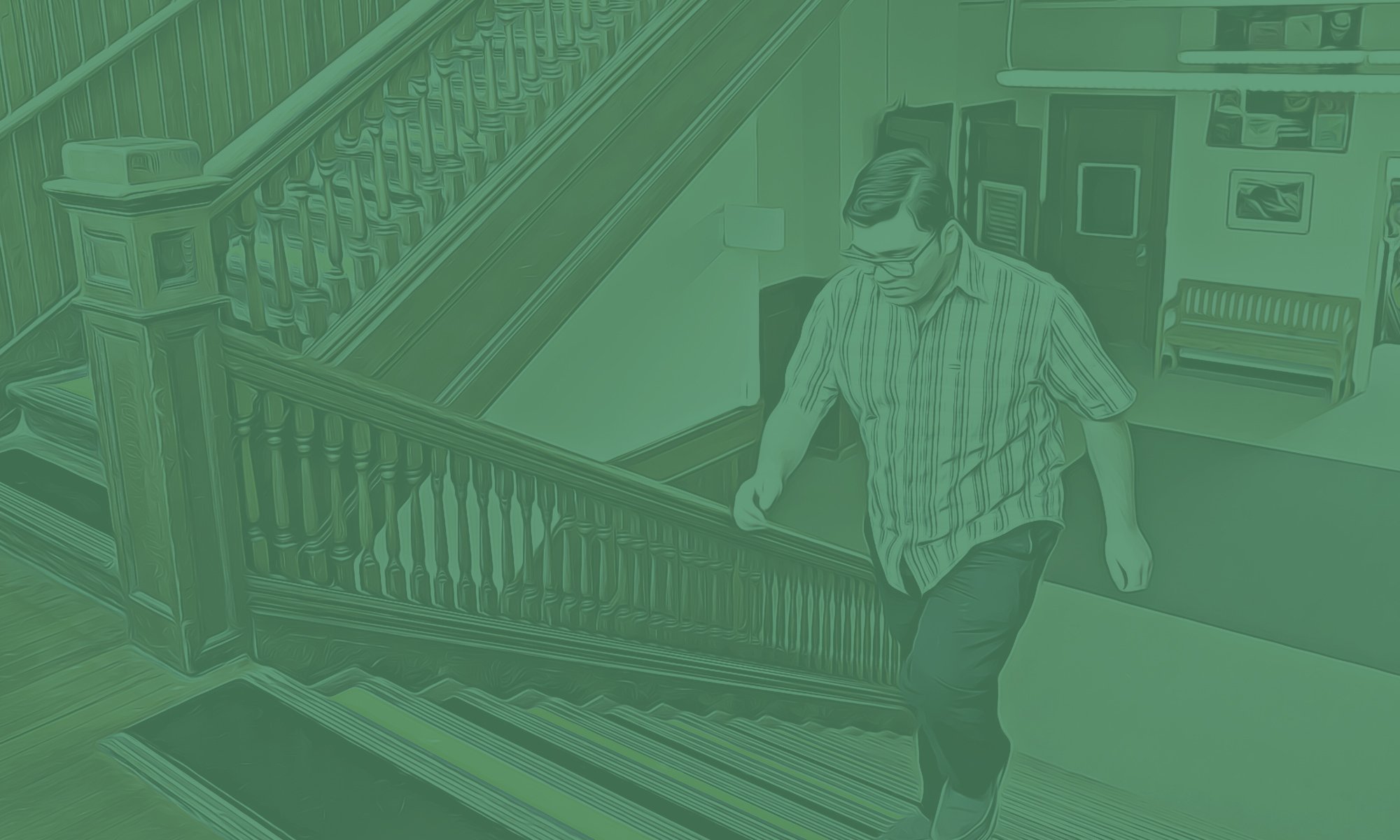
Centennial High School senior Mikey Hatch hopes his optimism and gratitude rubs off on others.
Mikey Hatch brings a smile and a positive attitude, with the goal of having fun, in all that he does. The Centennial High School senior hopes his outlook impacts his peers who he encourages to appreciate others and their own opportunities the way he does.
After not being in school for a while, Hatch arrived at Centennial determined to do well. He immediately embraced the school’s culture and has thrived with the connections he’s made with teachers and classmates.
Following graduation, he plans to continue working for the City of Fort Collins as a parks grounds worker and eventually would like to go to college. One thing’s for sure, whether it’s in school or his job, he looks forward to making the most of experiences and opportunities to come.
What has your high school experience been like?
I was homeschooled and there was a year where I wasn't doing anything. I just eventually kind of gave up. Then my boss was like you should try Centennial, I know a teacher there. And my supervisor came to Centennial as well. I was beyond ready at that point to come back to school. And I came here, and I devoted myself to it.
When you're not in school for a while, and then you go back, you appreciate it. It's weird. But you know, I like the work and the projects. There are a lot of opportunities to have fun like today I got to stand up in front of class and read my poem and everyone loved it. They laughed at it. That felt good.
What impact and legacy do you think you’re leaving at Centennial?
I try my best to kind of encourage my peers to look at school the same way I look at it - with having fun, you know, taking everything as it comes and not just seeing it as just work and drudging along. Rather seeing it as an opportunity to express yourself and have fun. I'm always trying to encourage other people. I want to show appreciation for people. I want more people to look at the school the way I see it.
How has your school had an impact on you?
The teachers love to build personal connections with their students. That’s a big help - to encourage people to even show up in the first place and do their best. I feel like without the encouragement and the friendliness I get from these teachers, I wouldn't be where I am and doing as well as I am.
When we thought Centennial was going to be closed, which might still happen, the teachers were looking out for me. I wasn't showing any signs of being distressed about it, except I was, and I felt like I could have used some sort of comfort. And Tom (a teacher) saw me walking past while he’s talking with fellow teachers. Even though I looked normal, and I was just stomaching it and was going about my business, he pulled me aside and gave me a hug, like he could somehow tell that it was on my mind.
How did you know that Centennial was the school for you?
The first thing that drew me in was the ‘no school on Mondays’ because then I could work on Mondays. But it was mostly my boss and my supervisor - both have so many great things to say about this school. They could tell that I am an alternative kind of kid and that I would probably do better here, and I took their word for it. Eventually it became more than just their word and the ‘no school on Mondays.’ It became this nice community. I enjoy it.
How are you taking what you've learned, and the impact you've had here, the impact that Centennial has had on you, into whatever's next for you?
Eventually I learned to get along with my peers because I couldn't at first. I was completely socially crippled. Now I can handle telling jokes, spending time with people, encouraging people and being encouraged by them. I genuinely enjoy being around my fellow students and being personable and that's a valuable skill to carry on into your life.
Can you tell me a little more about your job?
I love my job. It’s a big part of my life. I’m a city employee who is a parks grounds worker. It’s turf care and services like the bathrooms, cleaning, and repairing things that are broken down. Occasionally I work on irrigation or on ball fields. It's a really nice job. There are so many little aspects of it like vehicle maintenance, equipment maintenance, keeping the shop organized. It’s a job that seems simple but there are a lot of layers to it.
What are your plans after graduation?
I’m going to stay in parks for a little while after high school. I want to go to college but I'm not going to college until I know what I'm going to college for.
Things I have thought about for college - maybe someday I'll become something akin to a museum curator. I am interested in that. Or a content designer in some form. I’ve been told a lot that I’m great in graphic design or my notebooks are nice and organized. But like I said, I'm going to stay at work for a while until I know.
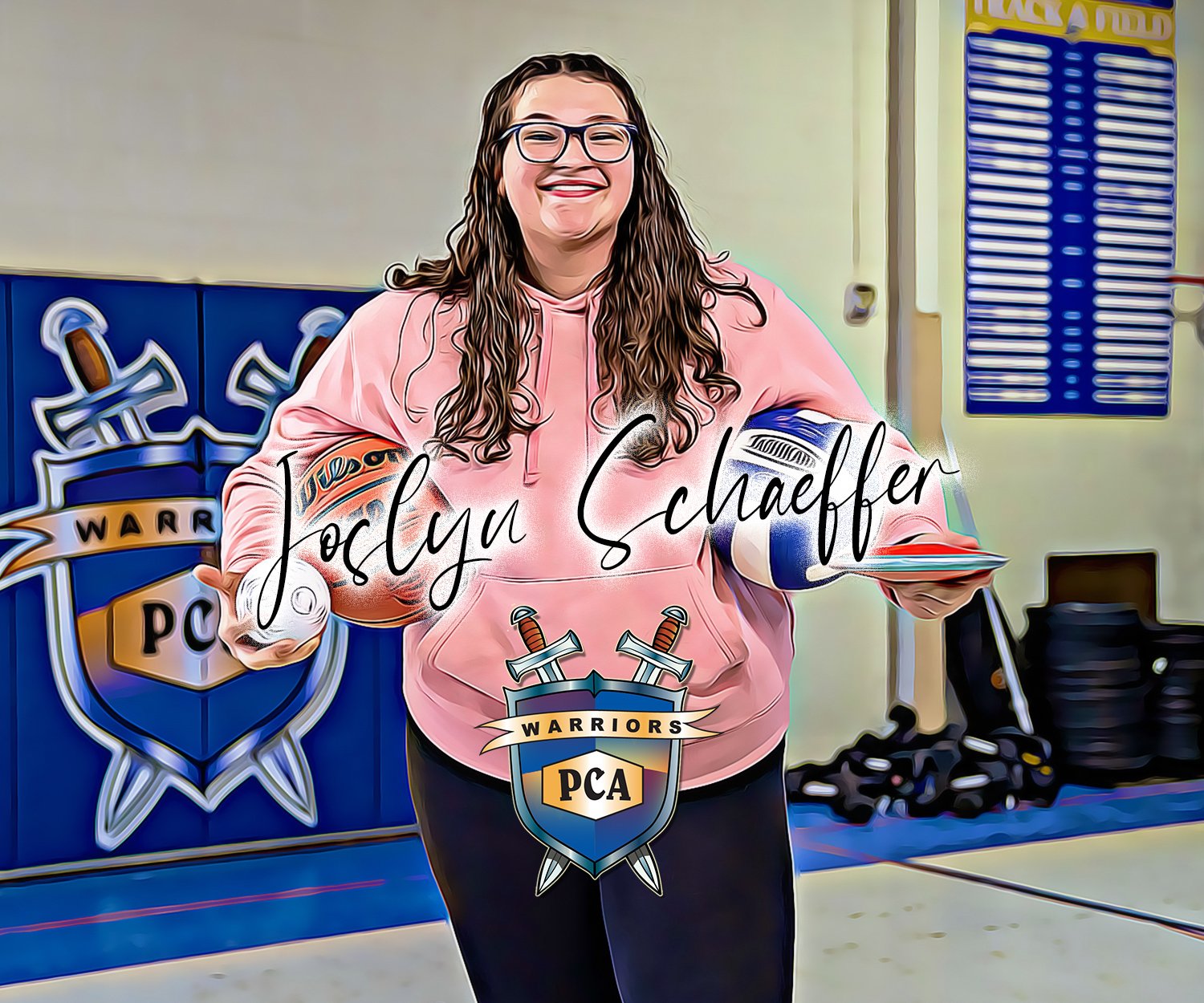
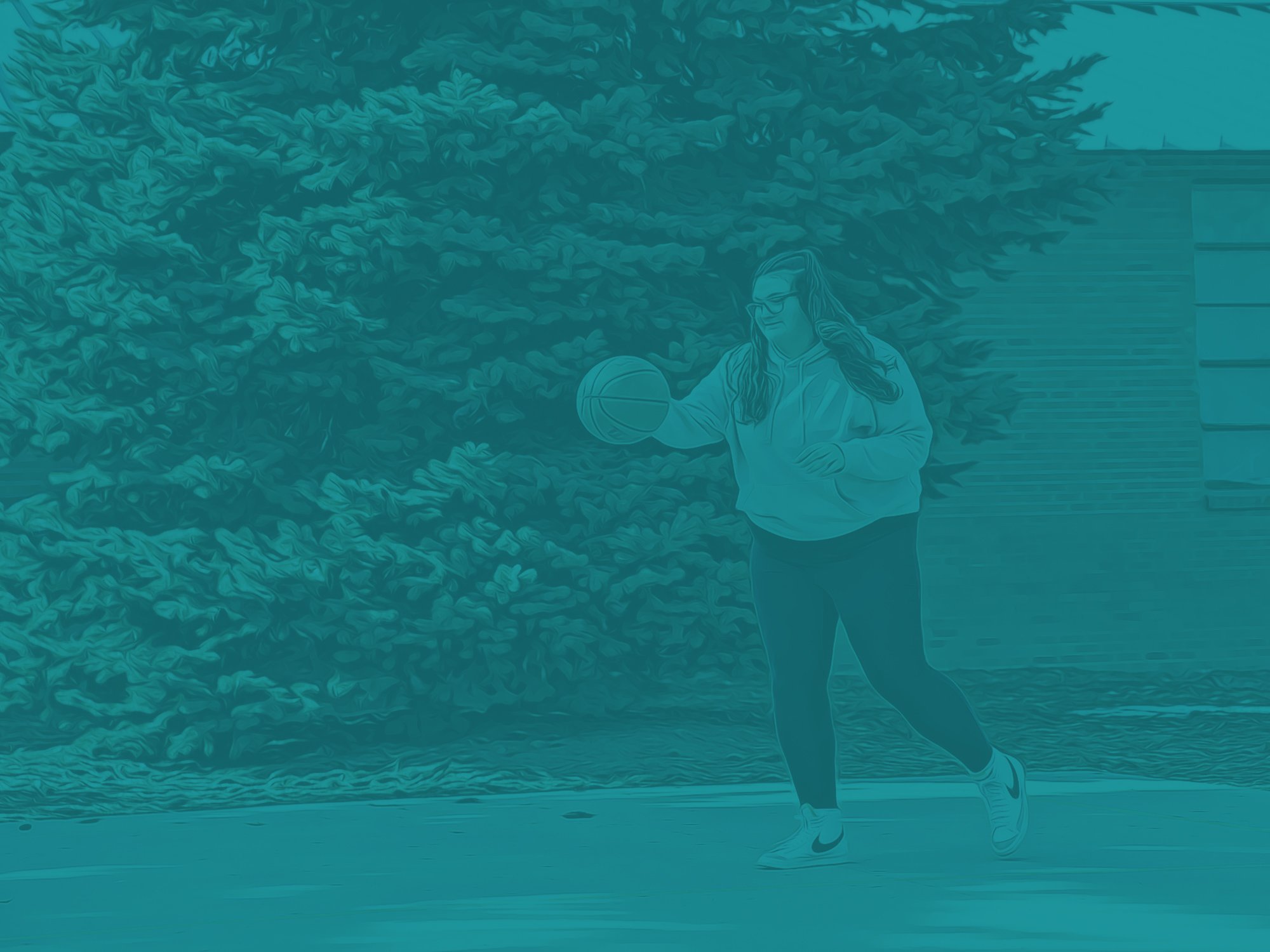
Joslyn Schaeffer
As the first to participate in almost all of Poudre Community Academy's sports, athletics has shaped Joslyn Schaeffer into who she is and has made her feel more connected to the school.
See how Schaeffer leaves her legacy in the gym as one of this year's Grads at a Glance students.
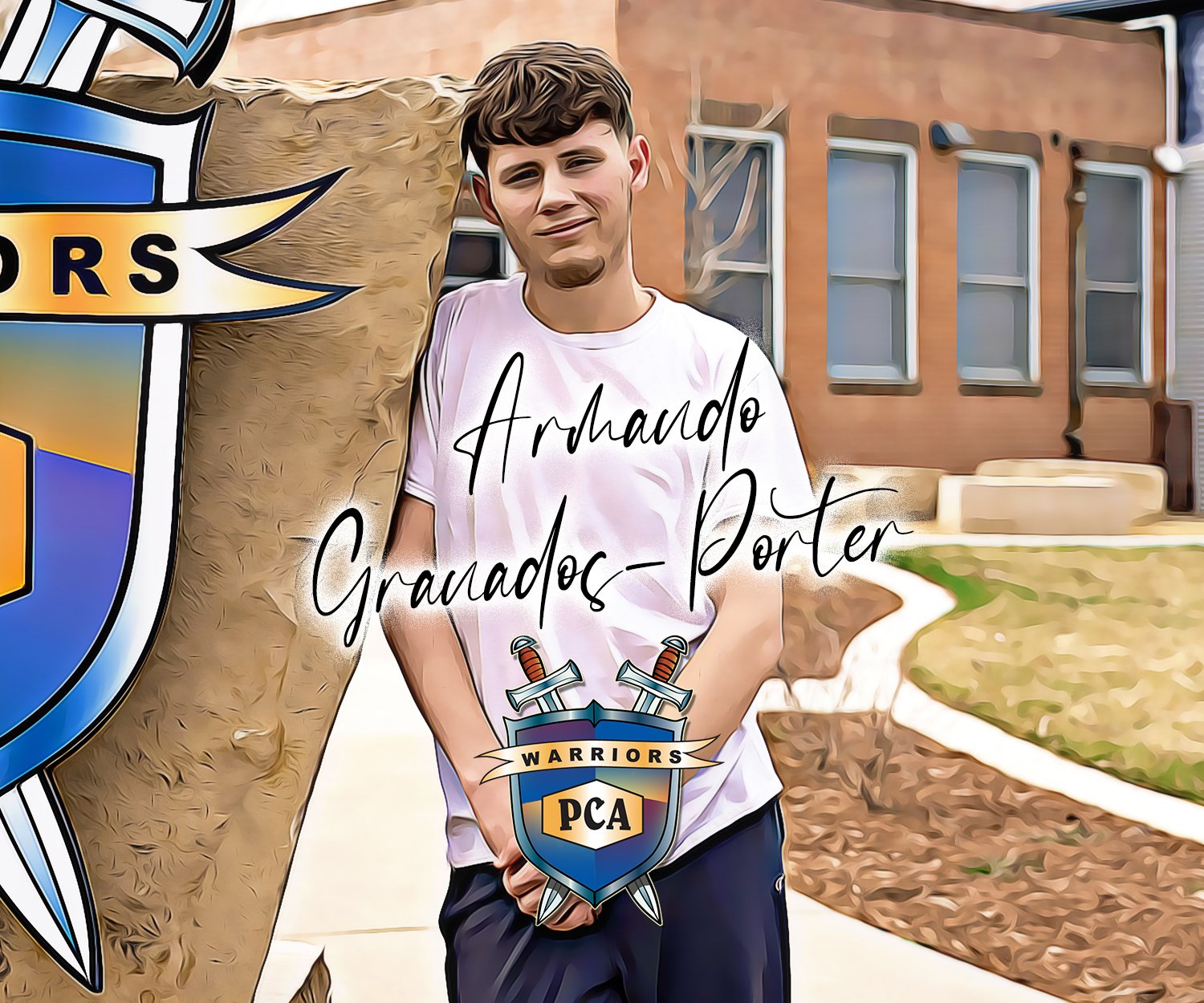
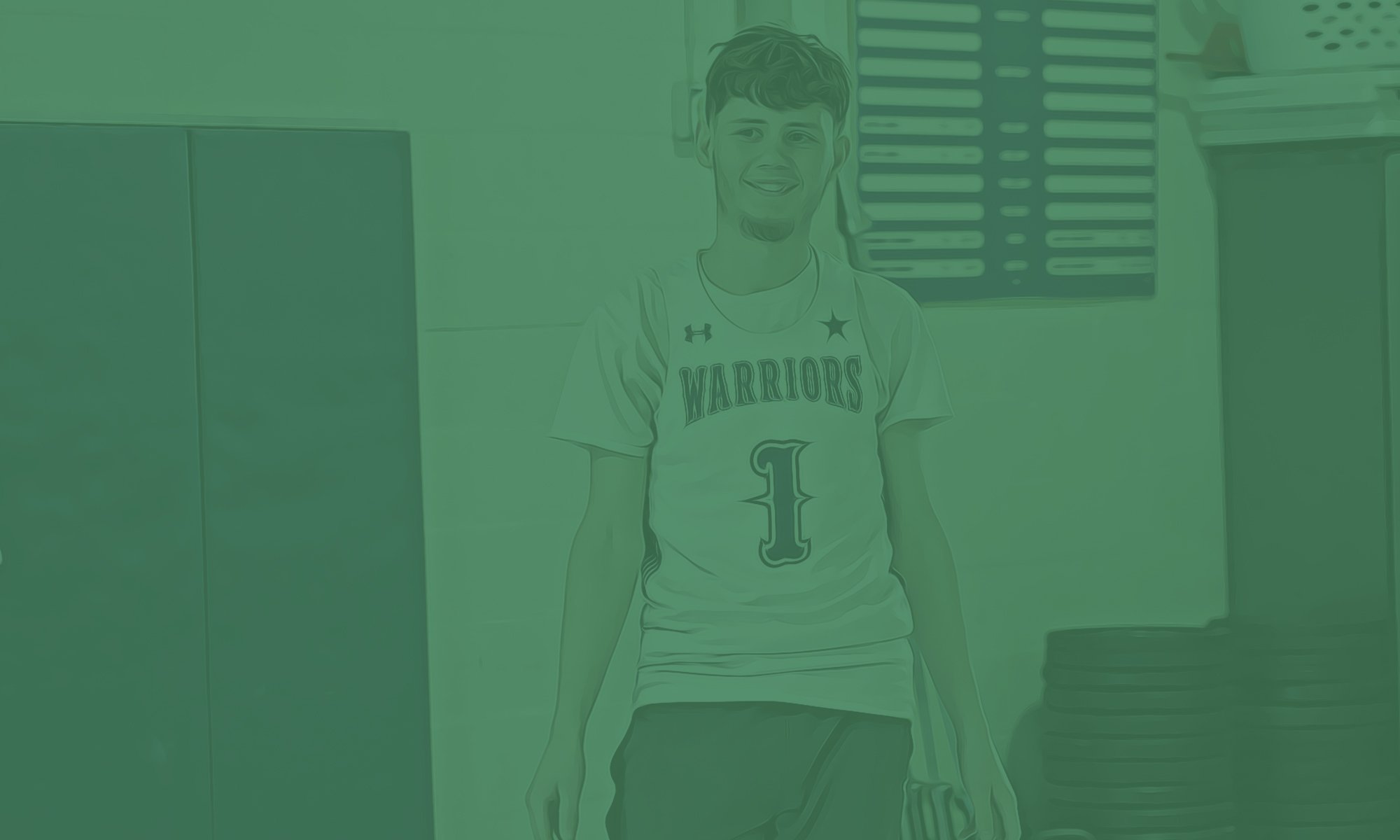
Shooting for success: Armando Granados-Porter grows into a leader at Poudre Community Academy
After a rough start freshman year, Armando Granados-Porter chose to attend Poudre Community Academy. Being in and out of school due to the pandemic created big ups and downs in his high school career, but he met senior year with unwavering focus and is determined to make it to graduation.
By trying a new school and a new sport, he has grown as a leader on the PCA basketball team and an excellent student who helps others find success. As graduation nears, Granados-Porter is leaving behind a legacy of leadership in his sport and school.
What has your high school experience been like?
I’d say COVID was rough in the beginning. I went to [Fort Collins High School] before I came here, and I didn't really know a lot of people. It was too big of a school, and I wanted to try something new. At PCA, it immediately clicked. I met so many people that I connected with. The teachers help us a lot here. They’re all here for us.
Football has been my number one sport. I played it in middle school, but we haven’t been able to play here because it’s too small of a school. So, I tried something new by playing basketball. I never knew the basics of it. I always double-dribbled or couldn’t shoot the ball, couldn’t make it in the hoop. But now, I got the hang of it, and I’m way better.
What impact and legacy do you think you’re leaving on PCA?
That's a hard question. I've been playing basketball for three years now since I came here. As a team, we were not prepared when we started. I built up the courage to lead the team in my own way and help others become more focused in the sport.
My first year playing basketball, we didn’t win a lot of games. Every time we lost, it was just, “Oh we don't want to play anymore. We’re not having fun.” That was until we had one game where we beat them by, I believe, one point. Just one point. We went crazy about it. We won finally, and that just felt good.
Basketball has been that motivation, especially towards graduation because it helps keep my grades up and keeps me on the right path.
At the beginning of the year, I got cut from the basketball team because my grades were very poor. I wasn't keeping up with them and missed a lot of school. I thought it was a joke until I got cut from the team. I didn't start taking this seriously until my teammates started saying things like, “We need you to step up and be able to play in these games, so we have a chance at winning.” That's when I started focusing on my grades, and ever since, I just never looked back. I stepped up to become a leader.
How has your school had an impact on you?
It’s the connection we have. Not a lot of people think it’s a good school, but it really is. It's a great school in general and a great community.
When I first came here, I realized how small it was. I was expecting it to be much bigger and have a lot more students. That stood out, and I realized I liked it like that.
The teachers and the staff here do everything in their power to make sure you pass your classes and graduate. They really do love their students.
How will you take what you've learned at PCA into whatever is next for you?
I'll definitely use my leadership skills. I like to keep the kids in check. Whichever ones don't listen, I like to step up and make sure they're being respectful and listening to the teachers.
As for the rest, I don’t know about that yet. My grandpa has a landscaping business, and he’s about to retire, so he wants me to take over, but I want to go to college too.
I’m planning on trying Front Range Community College first, and if it doesn’t go well, I’ll try somewhere else. Right now, I'm taking a college algebra class so I can get college credit, and that will help me a lot.